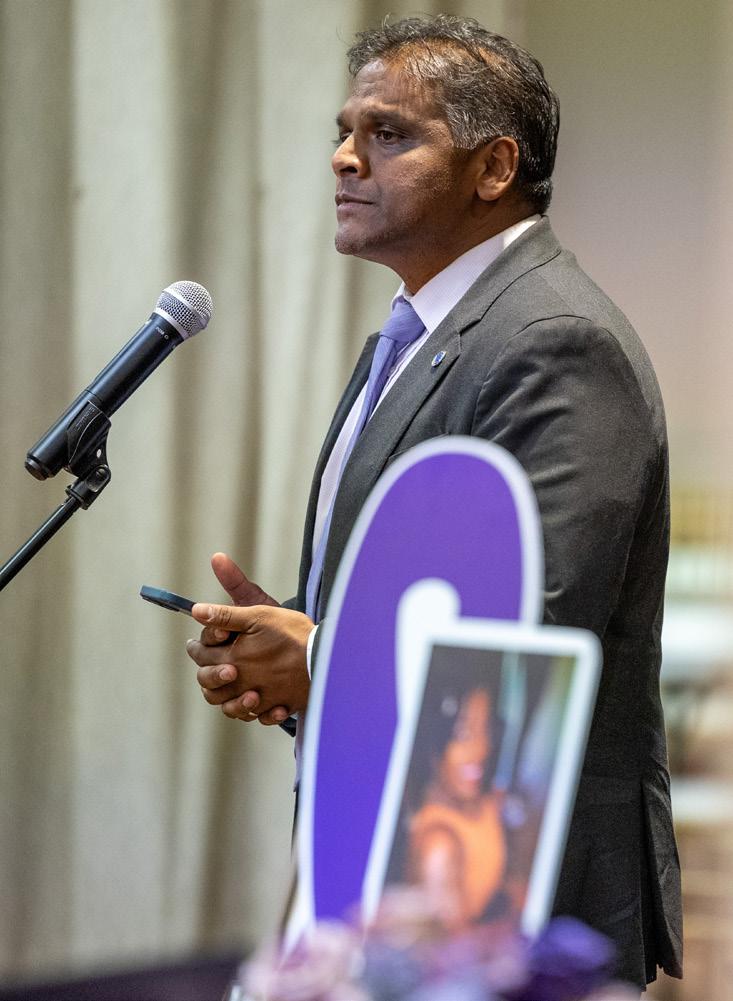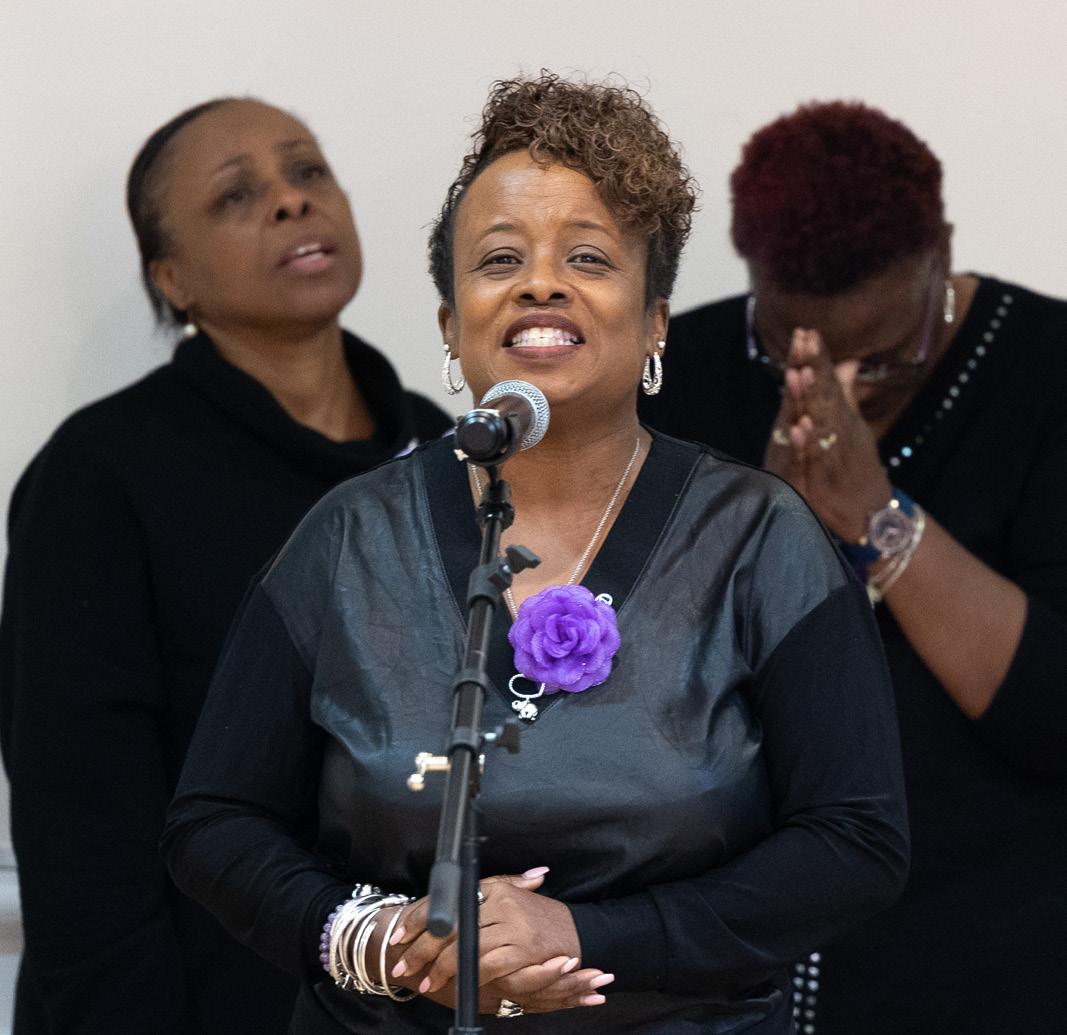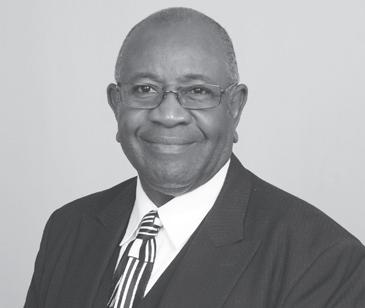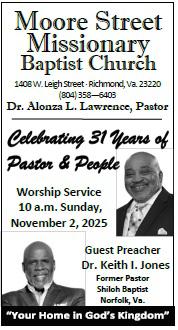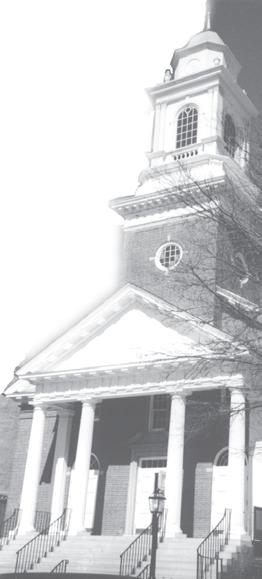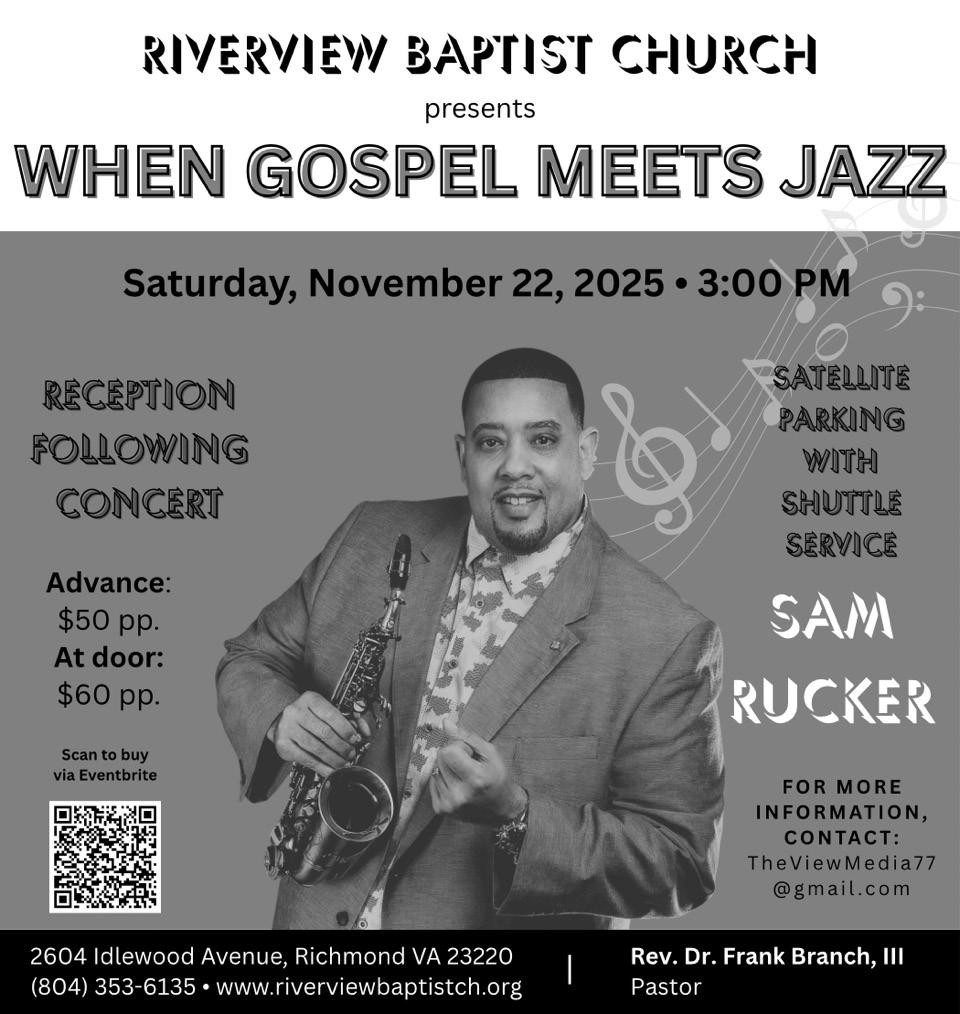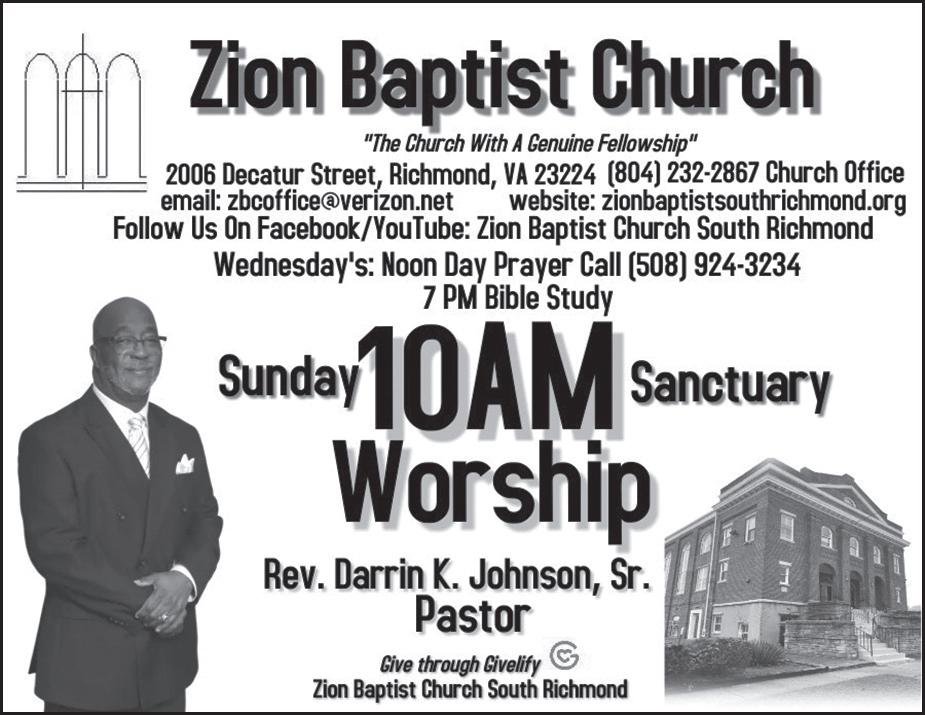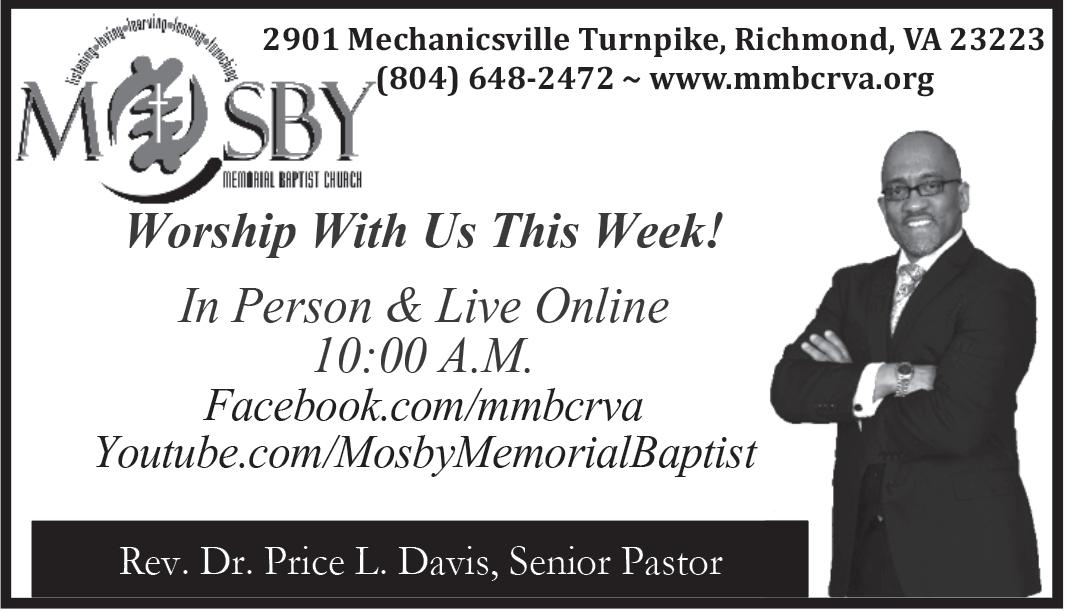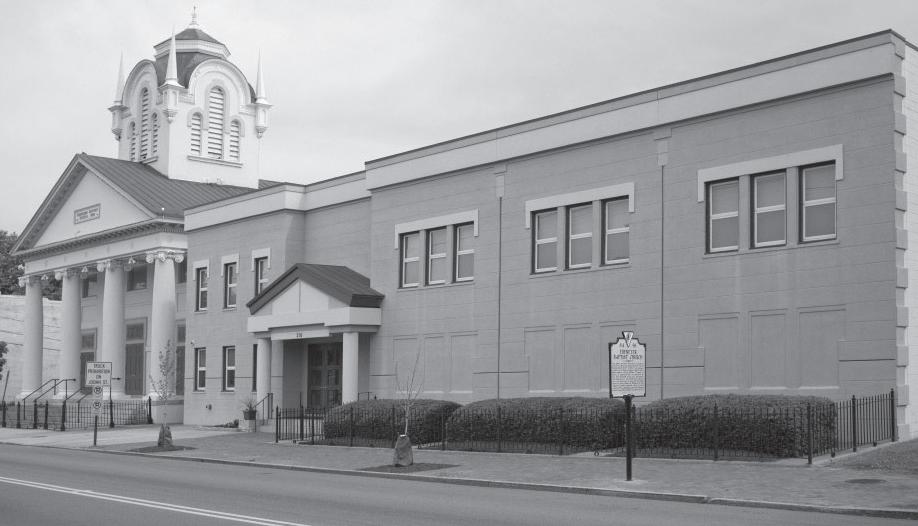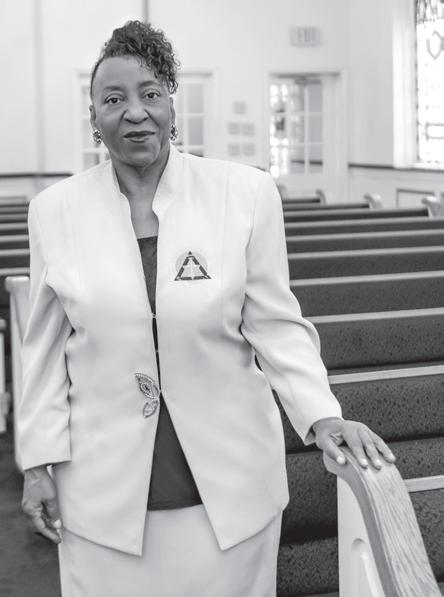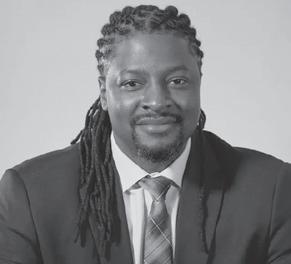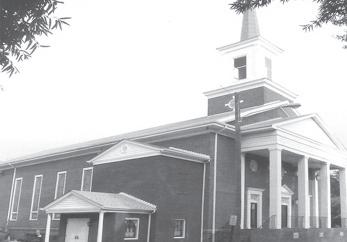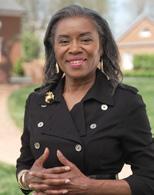

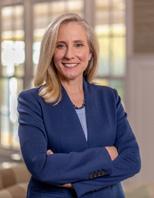


“If you can’t push them out through policy, tax them out.”
— Stephanie Lynch, City Council member 5th District






“If you can’t push them out through policy, tax them out.”
— Stephanie Lynch, City Council member 5th District
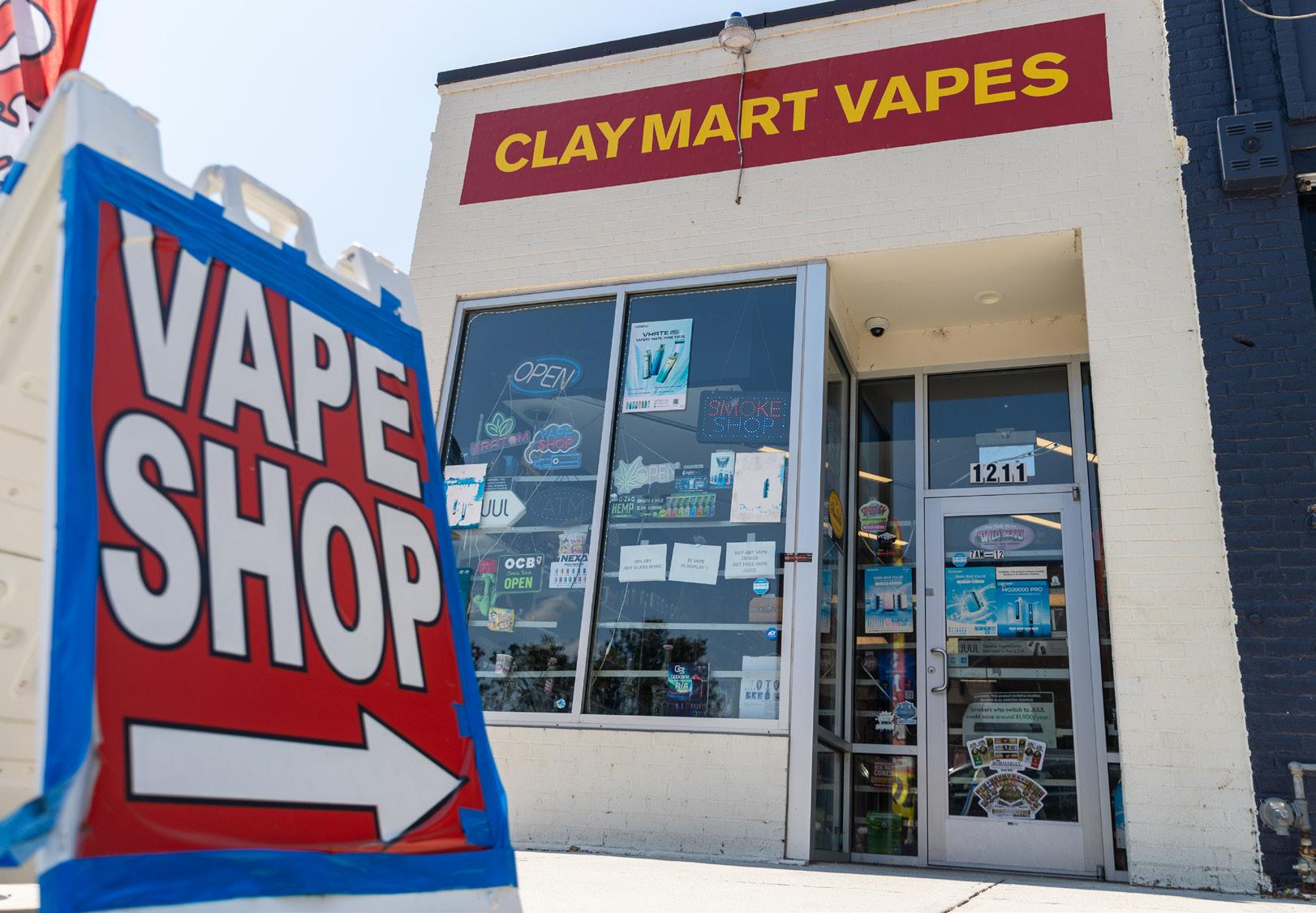
By George Copeland Jr.
City officials are weighing tougher measures on vape shops, including higher taxes, nuisance penalties and stricter enforcement, after repeated problems with illegal activity and robberies tied to some of the stores. Council members expressed frustration over the challenges of regulating the businesses during a Public Safety Committee meeting Tuesday, and explored new ways to address illegal sales and other ongoing problems.
“If you can’t push them out through policy, tax them out,” 5th District Council member Stephanie Lynch said, suggesting they focus on
By George Copeland Jr.
The halls of the Virginia General Assembly are abuzz with activity and arguments this week, as state senators and delegates returned for a special session that could reshape the state’s congressional districts.
Lawmakers were called back last week by House of Delegates Speaker Don Scott to continue a 2024 special session left unresolved.
The session centers on a proposed constitutional amendment that would allow legislators to redraw district lines in response to changes in other states.
The amendment would need voter approval in a referendum, which could occur only after votes in two legislative sessions separated by a statewide election.
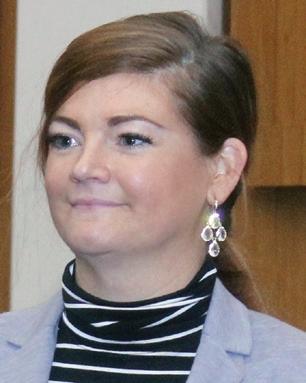
The session comes after several Republicancontrolled states approved new congressional maps at the urging of President Donald Trump. Other states are considering similar changes.
“We don’t amend the constitution lightly, we only do that in the most extraordinary circumstances,” Del. Rodney Willett, sponsor of the amendment, said Wednesday during a Privileges and Elections Committee meeting. “And I think those are before us today.”
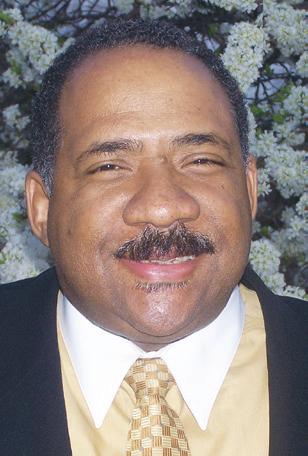
By George Copeland Jr.
More than a dozen Richmond-area organizations will join the Richmond chapter of the Southern Christian Leadership Conference (SCLC) on Sunday, Nov. 2 for a “United We Stand” march and rally. Supporting groups include the Virginia Interfaith Center for Public Policy, the Richmond Crusade for Voters, RVA Indivisible and United Food & Commercial Workers Local 400. The event aims to promote voting rights, justice, fairness and equality.
“The Richmond SCLC and its partners invite the entire community to participate in this peaceful, unifying event that celebrates the enduring struggle for equality and the power of collective action,” the group said in a news release.
The rally will feature songs, speeches and a performance of “We Shall Overcome” by Queen Esther Marrow, who has performed with the Duke Ellington Orchestra and Mahalia Jackson.
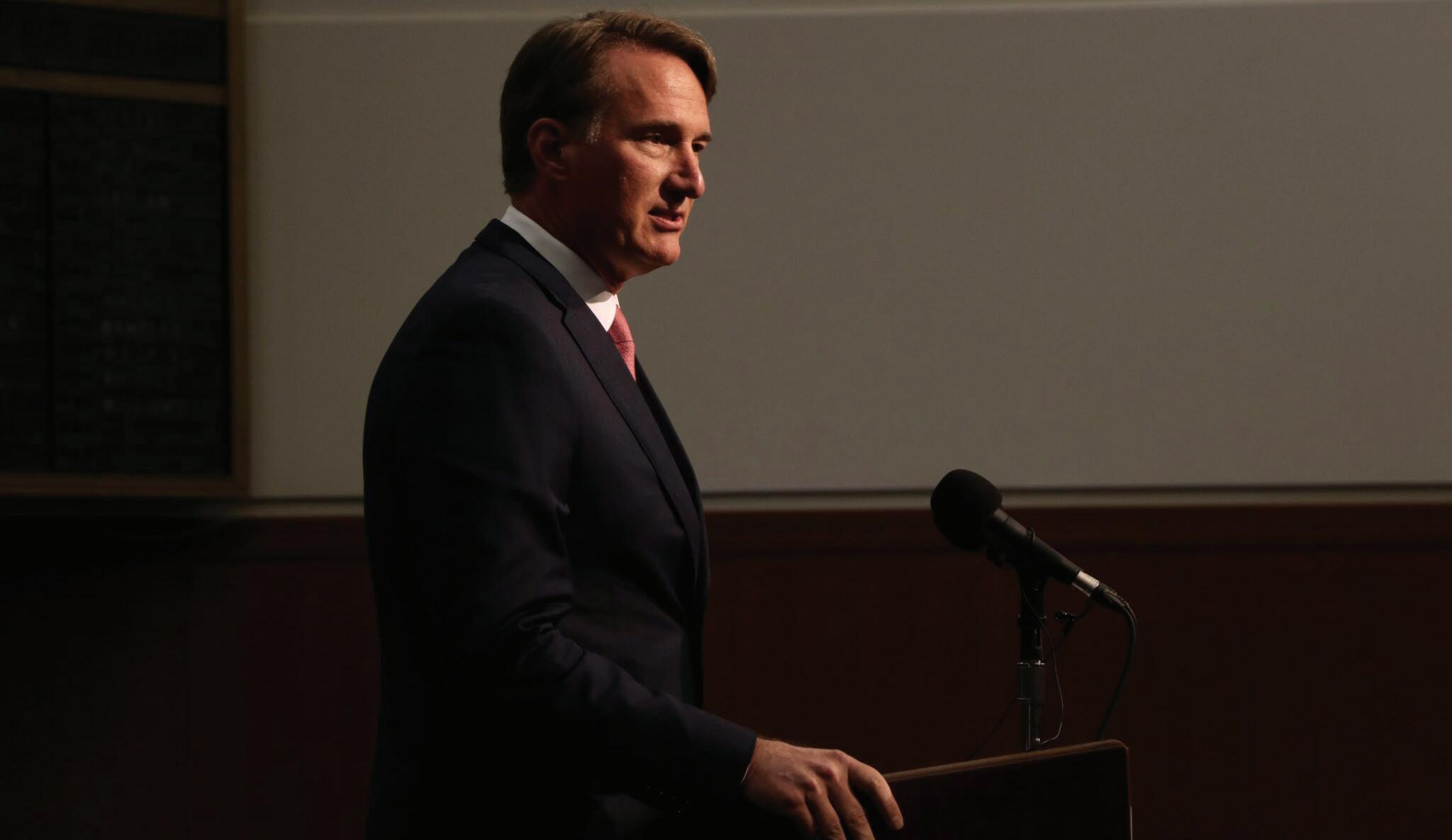


By Charlotte Rene Woods
Virginia’s budget surplus will fund a state-level replacement for the federal Supplemental Nutrition Assistance Program should the federal government shutdown continue into November, Gov. Glenn Youngkin announced Tuesday. Dubbed Virginia Emergency Nutrition Assistance, or VENA, the newly created program is expected to send money to SNAP
Several participating groups also plan to assist residents in getting to the polls. Richmond SCLC President William F. McGee said organizers hope to make the event an annual occasion.
For more information, contact McGee at (804) 4672707 or sclcrva@sclcrva.org or call Black Leadership Council of Richmond President Tracey Hardney-Scott at (804) 322-0272.
The event begins at Martin Luther King Jr. Middle School at 3 p.m., with a march across the MLK Memorial Bridge to City Hall. Participants will then walk to the Virginia State Capitol grounds, ending at the Bell Tower for a rally from 4 to 5 p.m.
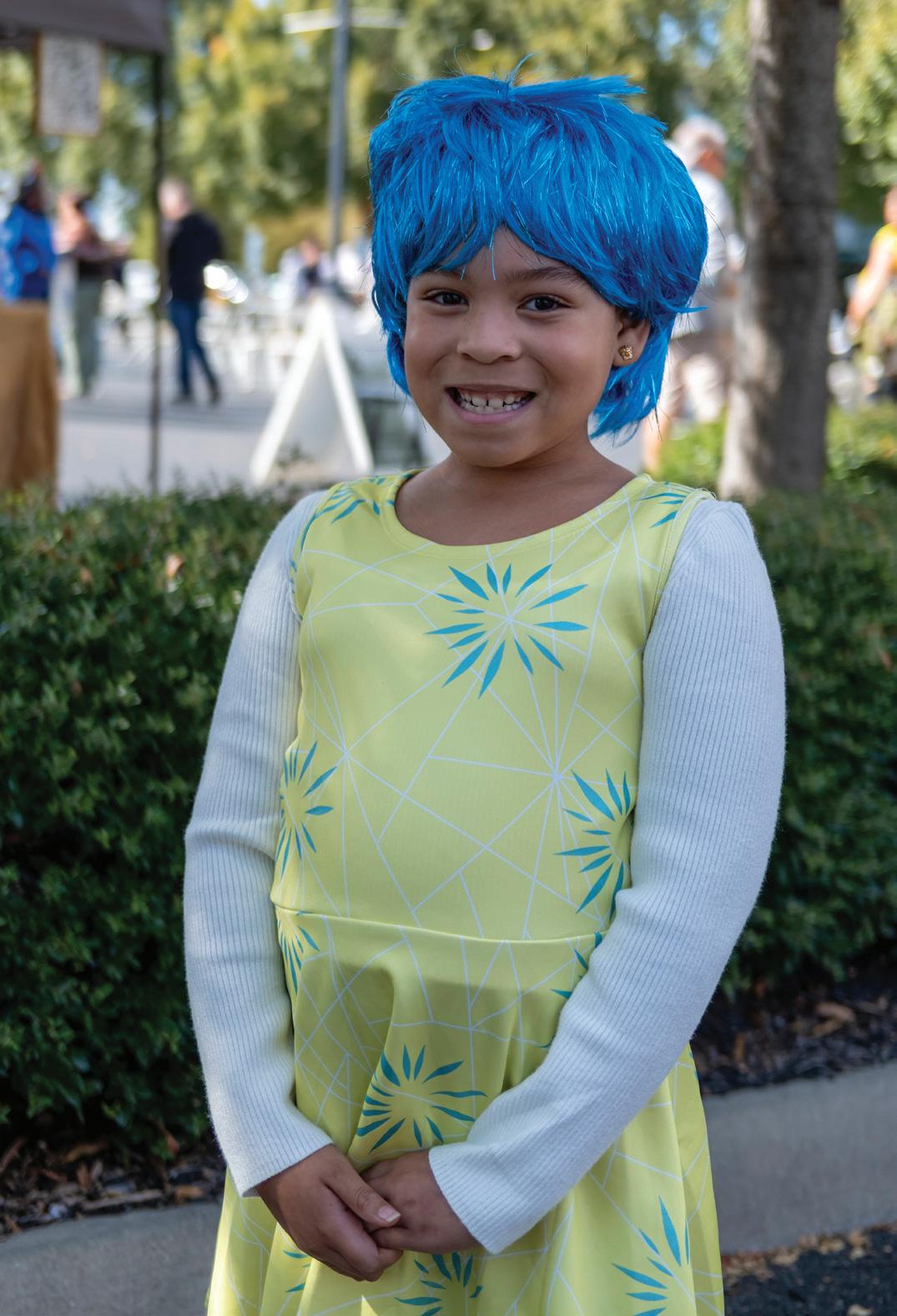

Free Press staff report
Virginia State University recently extended the contract of President Makola M. Abdullah through 2032, securing longterm leadership for the historically Black university.
Abdullah, who became VSU’s 14th president in February 2016, has overseen nearly a decade of growth, innovation and national recognition. Under his leadership, the university has achieved record enrollment, expanded scholarship support, strengthened financial stability and added academic programs aligned with workforce needs.
Victor Branch, rector of the VSU Board of Visitors, said the extension reflects confidence in Abdullah’s ability to continue leading the university effectively.
During his tenure, VSU has earned accolades for innovation, affordability and a student-centered approach. The university has also reported multiple years of record fundraising.
Gwen Williams Dandridge, VSU spokesperson, said the extension allows the university to build on the momentum created during Abdullah’s tenure.
Abdullah said he is “deeply honored to continue serving this great institution and its incredible students” and praised the university’s mission “to transform lives and communities through education, opportunity and excellence.”
City opens funding for affordable housing projects
The City of Richmond announced a new round of funding through its Affordable Housing Trust Fund, making more than $13 million available to support the creation and preservation of affordable housing. Applications will be accepted on a rolling basis until the funds are fully allocated.
The announcement comes just over a month after the city awarded $9 million from the fund to support eight housing projects and the city’s Healthy Homes rehabilitation program.
“Affordable housing takes collaboration, and the AHTF is a valuable tool in fostering the relationship between private and public partners to meet one of our city’s most urgent needs,” Mayor Danny Avula said. “I am hopeful that … we will see new proposals that will advance the affordable housing development Richmonders need and deserve.”
Nonprofit and for-profit housing developers are encouraged to apply. Program guidelines, application information and a recording of a training and Q&A session from the Department of Housing and Community Development are available on the AHTF webpage.
“Funding allocations like this are critical to the city’s ability to keep pace with growth while protecting the ability of longtime residents to thrive in their neighborhoods,” said Housing and Community Development Director Merrick Malone.
Applications will be reviewed competitively based on alignment with the city’s housing priorities, including affordability levels, project readiness and community benefit, according to a news release from the city. For more information or to apply, visit go.rva.gov.

Richmond and Virginia voters can cast ballots early for the 2025 elections, including races for governor, lieutenant governor, attorney general and all 100 members of the House of Delegates, as well as a variety of local offices. Early voting allows residents to vote in person before Election Day and can help reduce wait times at polling places.
In-person early voting continues through Saturday, Nov. 1. Locations will generally be open Monday through Friday from 8:30 a.m. to 5 p.m.; Saturday’s hours are 9 a.m. to 5 p.m. Early voting locations vary by jurisdiction, and voters may only vote early in the locality where they are registered. In Richmond, voters can visit the Office of Elections at 2134 W. Laburnum Ave., City Hall at 900 E. Broad St., or the Hickory Hill Community Center at 3000 E. Belt Blvd. Henrico County locations include the Western Government Center at 4305 E. Parham Road, the Eastern Government Center at 3820 Nine Mile Road, and the Varina Library at 1875 New Market Road. Chesterfield County voters may use the Central Library at 7051 Lucy Corr Blvd. Curbside voting is available for voters with disabilities and those over 65. Voters should bring an acceptable form of ID. For more information on locations, hours and ballot drop boxes, visit the Virginia Department of Elections website. Voters who requested a ballot by mail have several options to return it: by mail, in person at the general registrar’s office, or in person at an early voting location or official ballot drop box. All absentee ballots must either be returned in person or postmarked by Election Day, Nov. 4, to be counted. Mailed ballots must be received by the general registrar’s office before noon Friday, Nov. 7. The U.S. Postal Service advises voters to take ballots inside a post office and request a postmark to guarantee timely delivery. Voters living abroad are encouraged to use a commercial delivery service or deliver ballots to a U.S. embassy or consulate. Voters can check the status of a mailed ballot through the Department of Elections’ Citizen Portal.
Polls will be open Tuesday, Nov. 4, from 6 a.m. to 7 p.m. Anyone in line before 7 p.m. will be allowed to vote. Voters should be prepared to present ID at the polling place. Same-day registration is available. Voters registering at the polls will cast a provisional ballot and election officials will provide information about when and where the local electoral board will review the ballot. Voters are notified in writing if a provisional ballot is not counted. Results will begin populating on the Virginia Department of Elections results page as local registrars enter them. For more information on locations, hours, registration and deadlines, visit elections.virginia.gov

Slices of life and scenes in Richmond
Free Press staff report
Virginia Humanities has announced seven new recipients of its HBCU Scholars Fellowships, bringing together a diverse group of educators, writers and researchers from historically Black colleges and universities in Virginia and North Carolina.
“Through their research and public engagement, our fellows demonstrate the enduring relevance of the humanities and collectively confront some of the most pressing social and cultural questions of our time,” said Yosef Medina, Virginia Humanities’ director of strategic initiatives. “The HBCU fellowship represents a vital investment in cultivating diverse scholarship and amplifying underrepresented narratives at a time when intellectual freedom and public discourse around inclusion are increasingly contested.”
Established in 2021, the fellowship program provides financial support, access to publishing outlets, professional development and a peer community for scholars and creatives from HBCUs. The initiative is designed to elevate voices often left out of mainstream academic spaces while nurturing new research and storytelling that reflect the depth of the Black experience.
Among this year’s fellows is Kemba Smith-Pradia of Virginia Union University, whose project “Virginia’s Prodigal Daughter” draws from her 25 years as a criminal justice advocate.
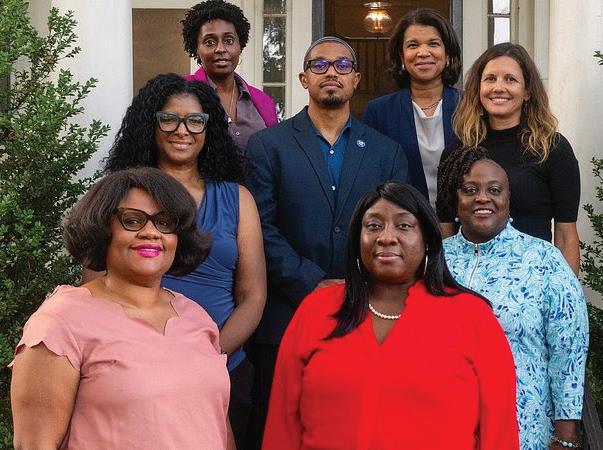
“This fellowship will personally help me reconnect with my voice as a writer and scholar by providing the support, visibility and intellectual community I need,” Smith-Pradia said. “It will allow me to transform over 25 years of lived experience as a criminal justice advocate into work that connects history, research, policy and politics while bridging the power of storytelling, justice and social impact.”
Smith-Pradia first gained national attention in the 1990s after being sentenced to federal prison in connection with her boyfriend’s drug activity — a case that drew widespread calls for sentencing reform. She was granted clemency by President Bill Clinton in 2000, and her story was recently dramatized in the BET+ film “Kemba,” renewing attention to her ongoing advocacy for justice reform.
Other fellows include Margaret Cox of Hampton University, whose research examines decolonization through creative adaptation; Stephenie Howard of Norfolk State University, who studies African diasporic symbolism and cultural continuity; Cheryl Mango of Virginia State University, exploring the relationship between U.S.
presidents and HBCUs; and Michelle Oliver, also of Virginia State, who is investigating the financial exploitation of enslaved people through life insurance and industry.
Monika Rhue of Johnson C. Smith University will focus on returning archival materials to the communities from which they came, while Hannah Baker Saltmarsh of Hampton University is completing a chapter on the transformative power of poetry.
The fellowships are supported by major grants from the Mellon Foundation and Google, totaling $1 million. Applications for the next round of HBCU Scholars Fellowships are expected to open in December. For more information, visit VirginiaHumanities.org/fellowships.
Richmond Health Equity Fund awards $135,000 to community organizations
Free Press staff report
The Richmond Health Equity Fund is providing $135,000 in continued funding to community organizations that address health disparities across the city. The grants will support programs focused on health care access, chronic disease, food security, maternal and child health, and mental and behavioral health.
“The Health Equity Fund embodies what it means to build a Thriving Richmond, where families, neighborhoods and communities have the resources they need and deserve to live healthy, full lives,” Mayor Danny Avula said. “I’m so thrilled to continue investing in trusted, community-led organizations that create real opportunity and advance health equity where it matters most. We’re deeply grateful to the community partners whose leadership makes this possible.”
Amy Popovich, Richmond’s deputy chief administrative officer for human services, said the funding helps close longstanding health disparity gaps.
“By investing in these seven organizational partners, we’re supporting proven,
community-led programs that continue to reflect what a Thriving Richmond can be. This funding reflects our belief that every resident deserves the chance to thrive and that equity is achieved when we resource those closest to the work,” she said.
The Health Equity Fund invests in community-led programs and leaders to improve health and quality of life in neighborhoods affected by longstanding inequities. Since its creation in October 2021 with $5 million in American Rescue Plan funds, the HEF has awarded more than $4.3 million, including $397,398 in new grants and $135,000 in renewed funding announced this week.
Organizations receiving continued funding include CrossOver Healthcare Ministry, which provides chronic disease care and education for uninsured or Medicaid patients in Richmond, and Health Brigade, which offers testing, treatment and care for syphilis, hepatitis C, tuberculosis and HIV to low-income, uninsured and underinsured residents. Healthy Hearts Plus delivers an eight-week virtual diabetes self-management program and a Food is
Medicine delivery program to help participants manage A1C levels, weight and related health conditions.
Kinfolk Community produces culturally appropriate food, trains youth in urban agriculture and promotes physical and mental health through education and community events. Shalom Farms maintains its Mobile Market program and supports additional products from other producers, addressing rising costs and community needs. Urban Baby Beginnings is expanding care coordination for birthing and postpartum individuals and their infants in Richmond. Drums No Guns Foundation provides mindfulness programs, expands community circles and engages students in school and garden programming, including the Generation Dream educational concert. The HEF was established to address key areas of health disparity and has diversified its funding sources beyond the city’s initial ARPA investment. Partners now include The Community Foundation, the Bob and Anna Lou Schaberg Foundation, Atlantic Union Bank, the Dominion Charitable Foundation and the Robins Foundation.

Continued from A1
More shops may be operating, as some unexpected locations have been found selling marijuana, often without any obvious advertisement.
“We executed a search warrant recently on a shop that looked like a home from the outside,” Edwards said. “They actually had a business license, but there was no signage, no nothing.”
Edwards and Vonck also described the challenges of shutting down shops that reopen quickly after seizures or arrests, and of regulating stores that continue operating despite past and ongoing violations.
“When we do coordinated enforcement, we often do find building code violations, health code violations, that they don’t have a business
license, maybe there’s delinquent taxes,” Vonck said. “Those elements are not, in and of itself, enough to stop the use.”
Enforcing the ordinance also remains a challenge. It bars new stores from opening within 1,000 feet of schools and parks but does not apply to shops that existed before it took effect. Vonck said the exception also applies when ownership of an existing shop changes hands.
With Election Day less than a week away and the city’s legislative agenda in development, officials are also considering how the state might address the issue in 2026.
“If there’s any state laws that you think would strengthen your ability to curtail or regulate these stores, ideas are welcome,” Lynch told Edwards and Vonck.
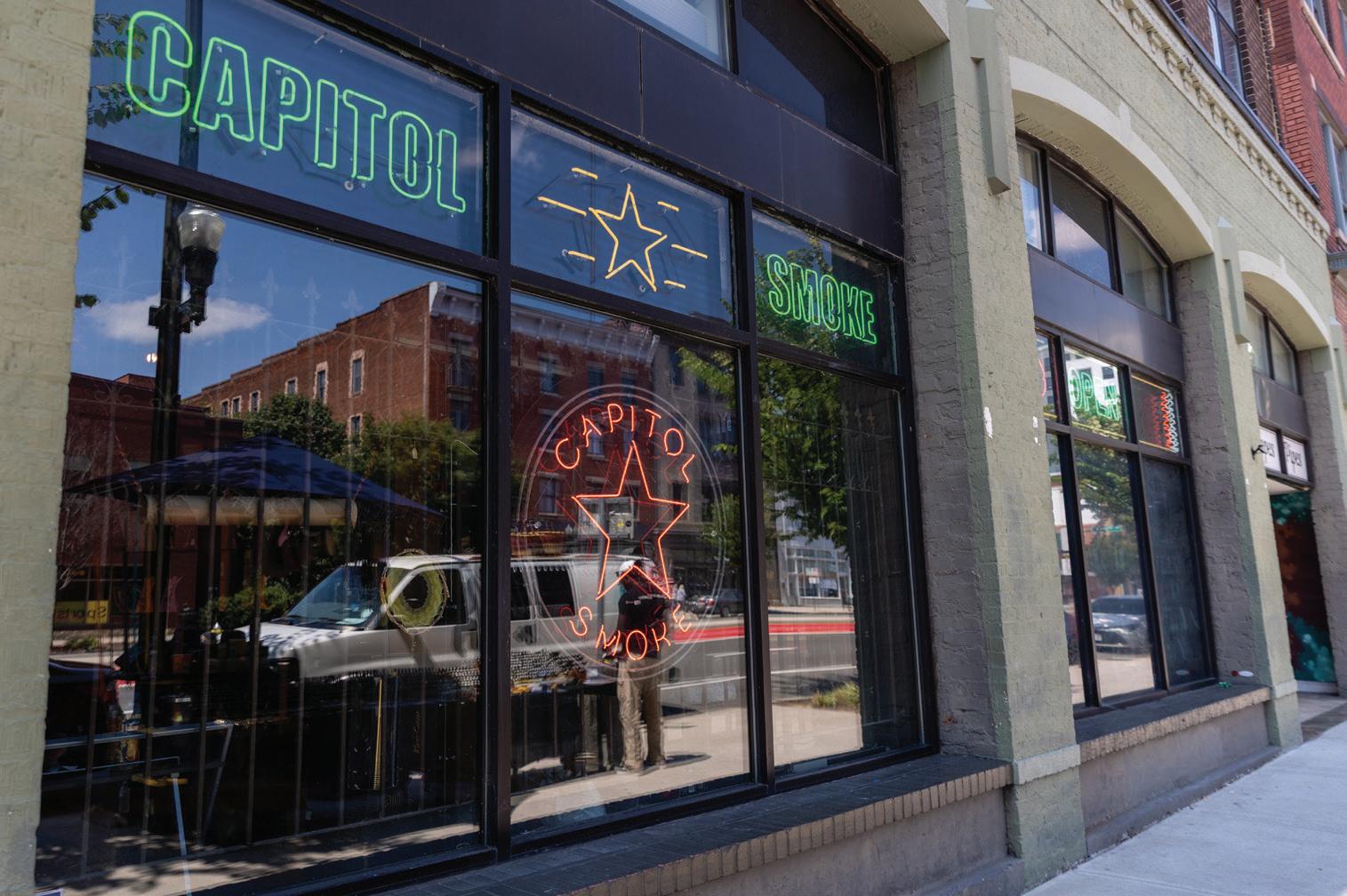
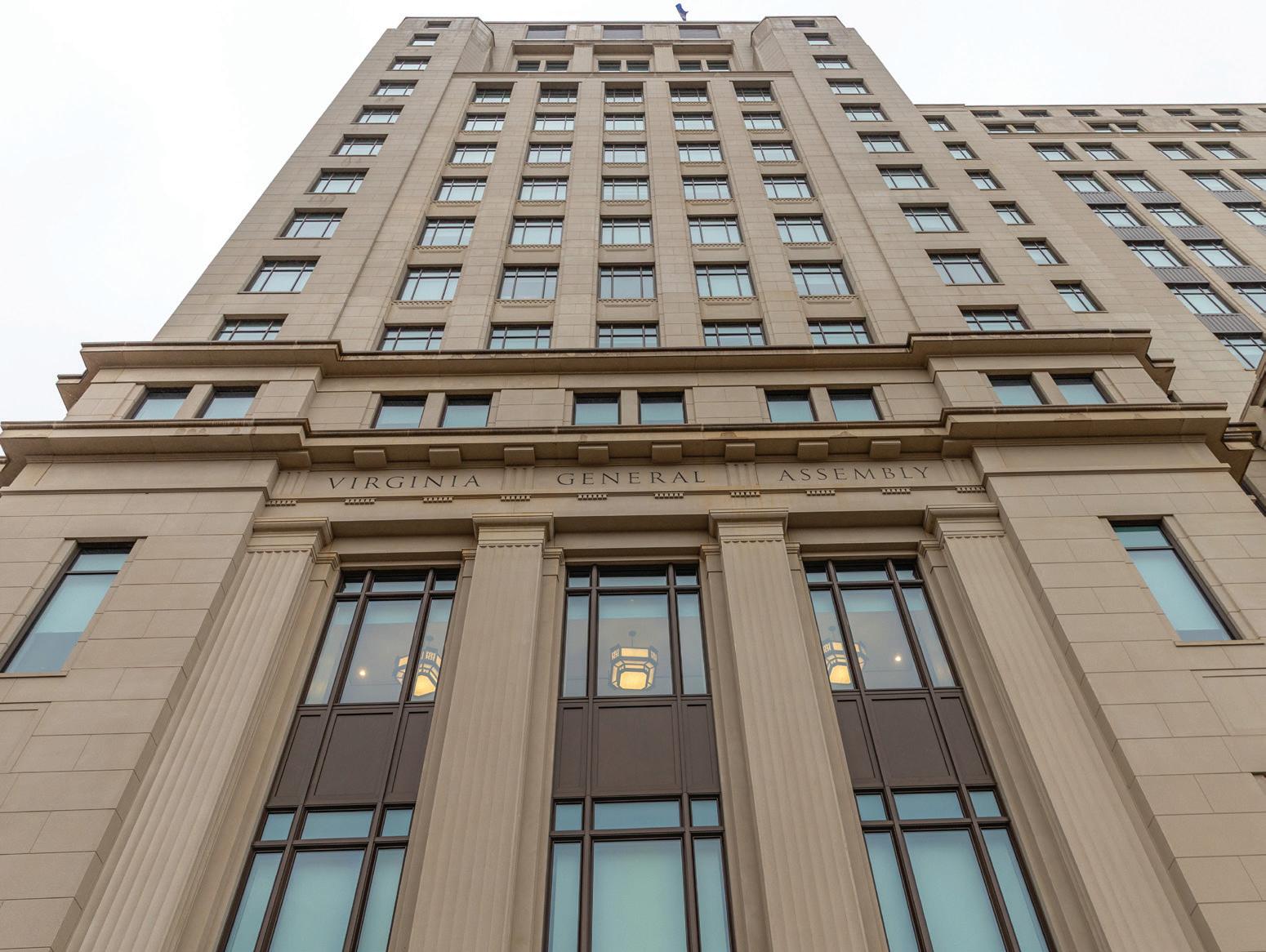
Continued from A1
Democrats have said redistricting by the General Assembly would be optional, not mandatory, if the amendment is approved, and that the Virginia Redistricting Commission, established in 2020, would continue to operate. They also emphasized the public’s role in deciding whether lawmakers would have this power.
Republicans in both chambers, meanwhile, have questioned the need for the change, the choice to hold the session during the gubernatorial election, and the legality and impact of introducing and voting on the amendment at this time.
House and Senate Republicans have filed a
lawsuit in Tazewell County Circuit Court seeking to stop the special session.
“To travel down this tortuous path is to transgress long-standing precedent in Virginia,” Del. R. Lee Ware said during the House meeting Monday.
Republicans outside the General Assembly also criticized the special session. Gov. Glenn Youngkin voiced his opposition, and Attorney General Jason Miyares questioned the amendment’s legality in an opinion released Tuesday. Resolutions related to the amendment and the special session have been approved along party lines by both chambers and the Privileges and Elections Committee since the session began. A vote in the House could come later this week.
Continued from A1
pause payments until further notice, starting Nov. 1. The federal government has been shut down since the beginning of October as members of Congress failed to agree on annual appropriations bills and several attempts at a short-term spending bill that could end the shutdown.
VENA’s payments will roll out in weekly waves every Monday, Wednesday and Friday and follow SNAP’s model of disbursing funds to a third of beneficiaries each time. With SNAP, a third of people are paid on the first of each month, another third gets paid on the 4th, and the last group gets their benefits on the 7th.
Unlike SNAP, however, people can expect VENA money weekly rather than their month’s allotment all at once.
Youngkin estimates that about $37.5 million will be allocated per week to Virginia’s roughly 850,000 SNAP recipients.
“Because we are designing this in real time, we need to pay the first benefits on a Monday,” Youngkin said as he announced details of the new program at the state Capitol on Tuesday afternoon.
Youngkin acknowledged the “hardship” recipients may face if they had expected their normal SNAP payments on the first of the month, which is a Saturday. To remedy that problem, he directed $1 million to the state’s network of food banks to help bolster their support.
Last week, Virginia’s food banks had cautioned that they could not fully absorb the spike of Virginia’s SNAP beneficiaries that would flock to them for help.
Youngkin said he anticipates Virginia can operate the program through the end of next month, but he hopes that Congress can end the shutdown before then.
Social programs held ‘hostage’
The governor cast the blame for the shutdown and impending SNAP freeze on Democrats in Congress, where Republicans hold the majority.
“To be honest, I think our nation will be in a state of complete disarray if the Democrats in the Senate continue to drag out this complete shutdown and hostage-taking that they have engineered,” Youngkin said.
He suggested that Democrats in Congress are essentially putting programs like SNAP at risk, which “continues to just absolutely defy any sense of morality.”
His remarks echo that of politicians nationwide, who have played a blame game about who’s at fault for the federal shutdown and its effect on states.
President Donald Trump is on an out-of-country trip to Asia while the U.S. House of Representatives has not been in session in more than a month. The U.S. Senate has continued to meet but has also failed to agree on continuing resolutions.
A key sticking point for Democrats has been an attempt to extend expiring Affordable Care Act subsidies that the Republicans in Congress left out of their reconciliation bill this summer.
Those subsidies help low-income people who don’t qualify for Medicaid to be able to purchase health insurance on their own. The matter has taken on fresh salience as the reconciliation bill entails forthcoming changes to health care that would cause millions of Americans to lose Medicaid insurance and funding losses to hospitals. The bill took aim at Medicaid in order to boost funding for the U.S. military and U.S. Immigration and Customs Enforcement as well as to extend tax cuts that primarily benefit high-income earners.
“Republicans still control the White House, the Senate, and the House of Representatives. They have, quite literally, the power to stop this,” Virginia’s U.S. senators, Tim Kaine and Mark
Warner, said in a statement provided to The Mercury. “They also had the power to defend nutrition benefits earlier this year, but chose to sell out working families as part of the Big Ugly Law in order to offset the cost of tax breaks for billionaires.”
U.S. Rep. Jen Kiggans, R-Virginia Beach, has agreed with her Democratic colleagues that the ACA subsidies should be extended and urged her fellow Republicans to address the matter — but she suggested in a letter to Speaker Mike Johnson that Congress take up the matter after ending the shutdown.
Kaine, Warner and others have also urged the USDA to tap into its $6 billion contingency funding in the interim to support SNAP nationwide.
SNAP recipients will have relief for now
The political back-and-forth over the past month has caused stress for local SNAP recipients, including Richmond resident Asia Broadie, a single mother balancing work, parenting and schooling to become a nursing assistant.
On a recent trip to the grocery store with The Mercury, she explained which bulk purchases get her through each month and how she’s able to tap into a state program to buy discounted produce.
“They’re growing and they’re eating — it goes quick,” she said of her children.
While Virginia’s budget surplus has allowed Youngkin to get creative with short-term solutions, he emphasized Tuesday that each state is different and not all can absorb issues that stem from the federal fallout.
“The National Governors Association has called us to ask us how we are doing this,” Youngkin said. “We’re leading different states in different circumstances, and I think we have decided

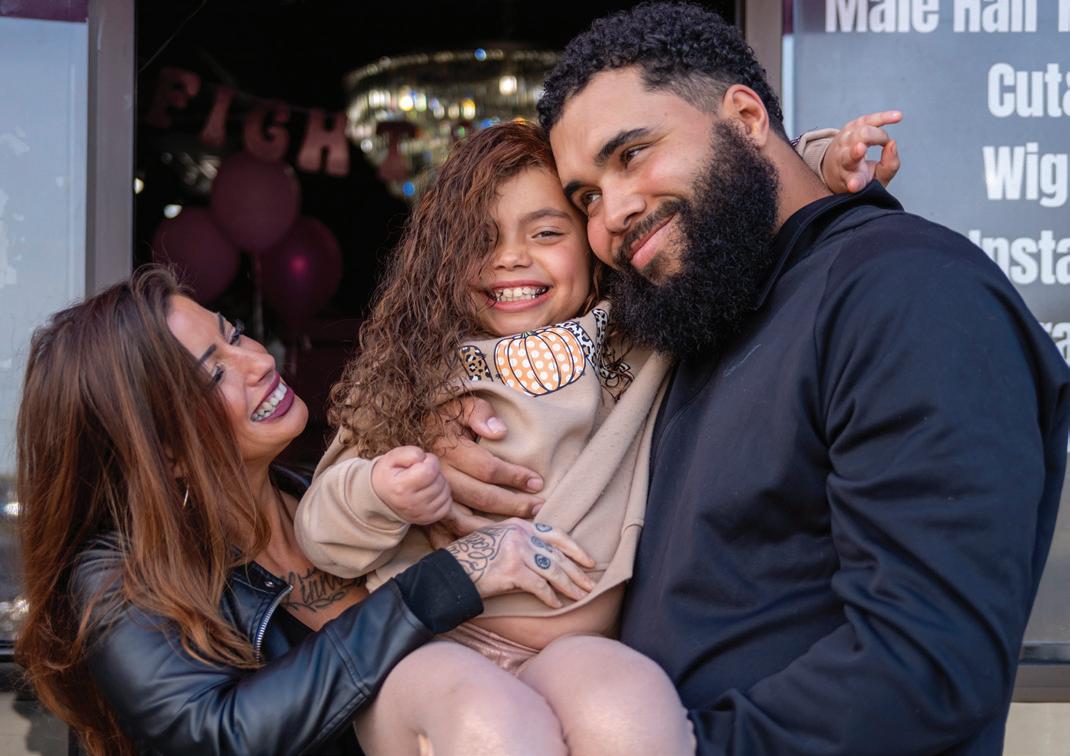
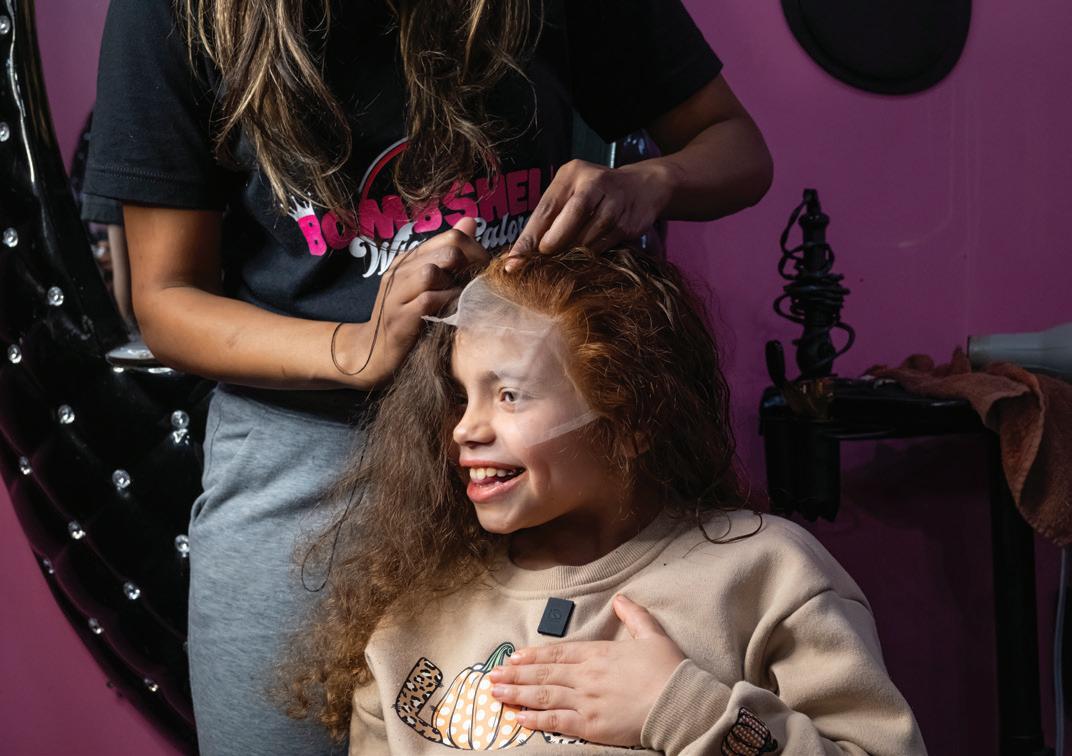
Myla, a 7-year-old brain cancer survivor, received a custom hairpiece Saturday at Bombshell Wigs Galore, marking a milestone in her recovery and offering a boost to her confidence.
Myla was diagnosed at age 3 with an aggressive form of brain cancer. She underwent surgery and multiple rounds of chemotherapy to remove tumors. Now in remission, she continues to manage the lasting effects of her treatment, including hair loss, which has been a source of anxiety as she returns to school and social activities.
Her mother, Kristen, said the hairpiece installation would help her daughter feel “confident and proud” again. “Myla has been through more than most adults ever will, but she’s still smiling,” she said. “This [hairpiece] means she doesn’t have to explain herself or worry about kids asking questions. She can just walk into school and feel like herself again.”
Salon owner Lameisha Weatherspoon and her team led the installation, providing styling, guidance and encouragement throughout the morning. The event included a shampoo, blow-dry and hairpiece placement, followed by a reveal and a brief interview with Myla and her mother. Weatherspoon said moments like these reflect the salon’s mission to support clients emotionally as well as physically.
“Seeing Myla’s courage reminds us that hair is more than beauty; it’s part of how we see ourselves,” Weatherspoon said.
spoon, is
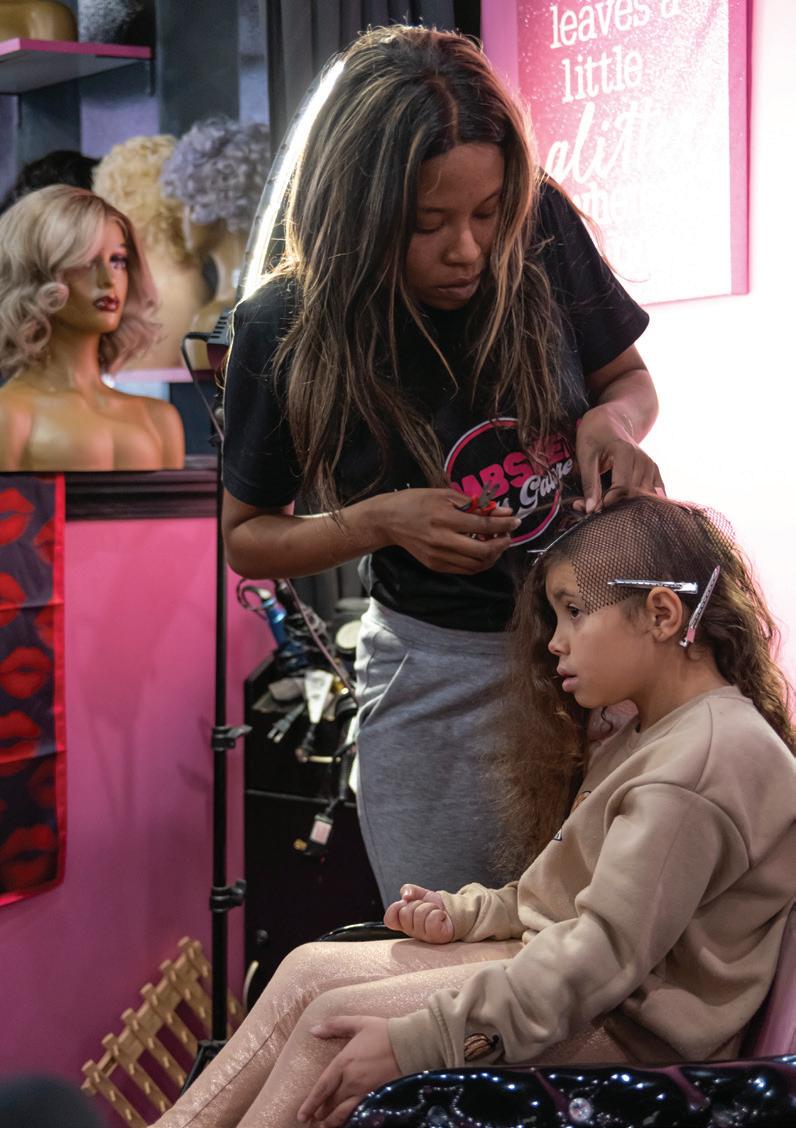


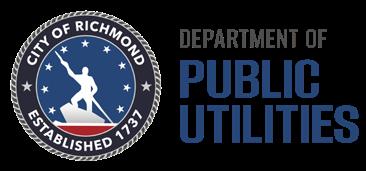

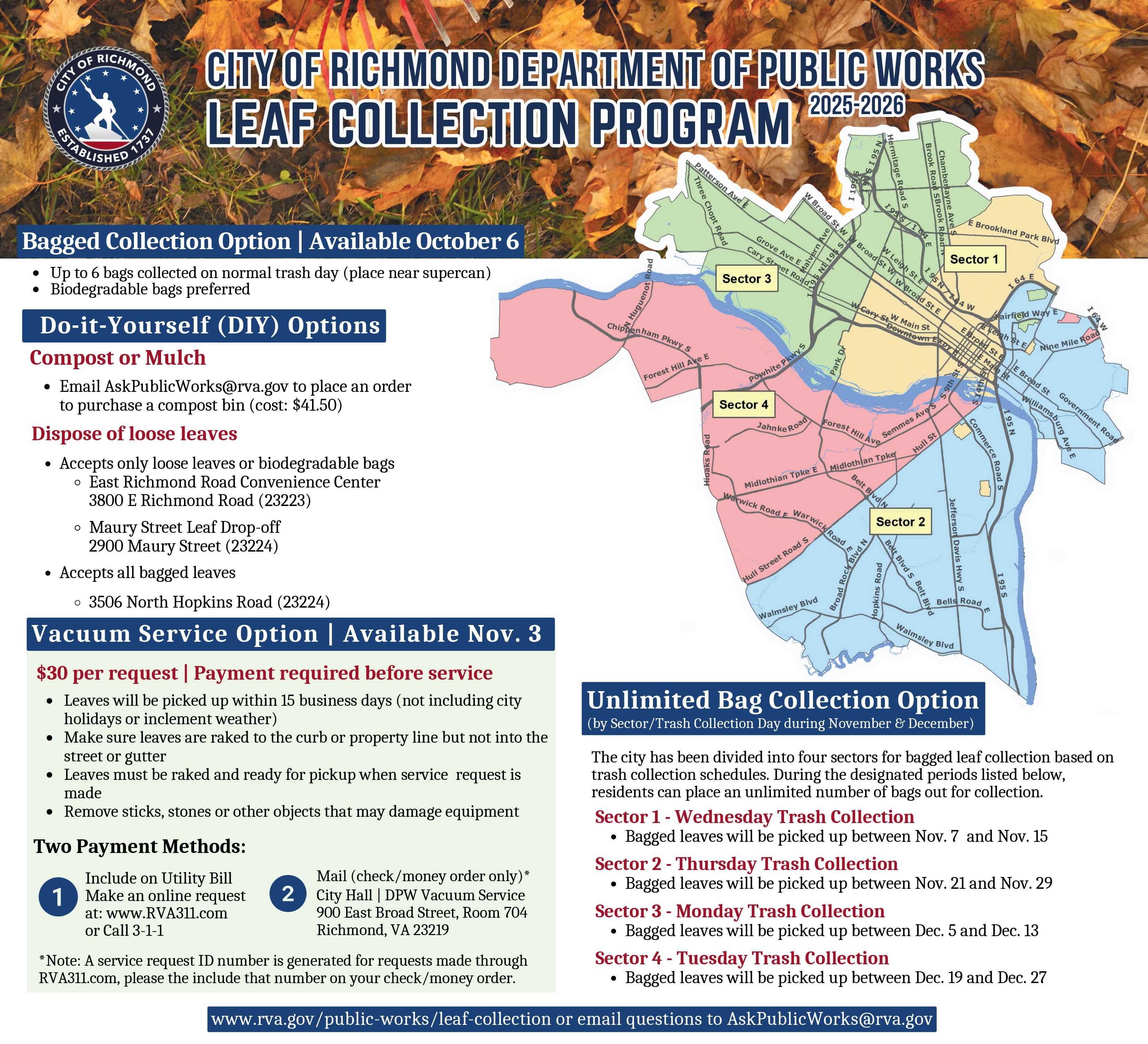
Transgender teens ages 13 to 17 comprise a scant 3.1% of the youth population in Virginia. But trans issues have loomed unusually large in Virginia’s gubernatorial election this year — and not in a good way.
From 2014 to early 2025 — when state policy changed to prevent transgender athletes from participating in girls sports in the public school divisions — just 48 appeals had been filed by transgender athletes to compete in school sports, a Virginia High School League spokesman confirmed to me. That’s a minuscule number of students who participate in sports annually.
than it spent on any other issue. The news website Notus. org said Republicans in the gubernatorial contest, including her campaign, have dedicated a whopping 57% of all their paid media campaigning toward transgender-related issues, citing data from the company AdImpact.
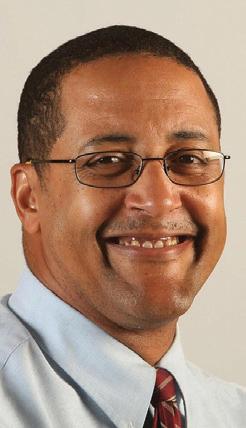
Yet Republican gubernatorial candidate Winsome Earle-Sears has flogged the issue repeatedly, in a way disproportionate to the number of people affected. The scheme also distracts from more critical concerns, like soaring food costs, impending health care changes, and the chaos that has beset the federal government since Donald Trump’s second presidential term started in January. Those issues affect all Virginians.
Earle-Sears’ hateful strategy targets already vulnerable people who seek to be their true selves. She has employed it to try to defeat Democratic Party nominee Abigail Spanberger in November. The former congresswoman has been more tolerant on transgender topics, and she has said bathroom use in schools based on gender should be decided at the local level.
CNN reported that last month, Earle-Sears’ campaign spent $2 million on ads focused on transgender policy, more
The discriminatory crusade demonizes transgender people and their families. Other GOP candidates across the country
have followed suit in local, state and federal contests. It suggests how bankrupt their overall messaging is.
For example, state Del. Chad Green, R-York, who’s running for reelection, teamed up with Earle-Sears this month at a campaign stop in Williamsburg. He said barring “biological males” from competing against females was among his top priorities, The Virginian-Pilot reported. Added Earle-Sears: “All the Democrats want biological men in girls sports.”
It’s a lot of umbrage directed at a relatively small population of athletes and individuals. And these Republican candidates know it.
Transgender adults, incidentally, have a prevalence of past-year thoughts about suicide “that is nearly twelve times higher, and a prevalence of past-year suicide attempts that is about eighteen times higher, than the U.S. general population,” according to the Williams Institute at the UCLA School of Law. They certainly don’t need hyped comments from political leaders.
The Republican tack on transgender people is reprehensible. This cynical blueprint to stoke fear, drive transphobic voters to the polls and exploit
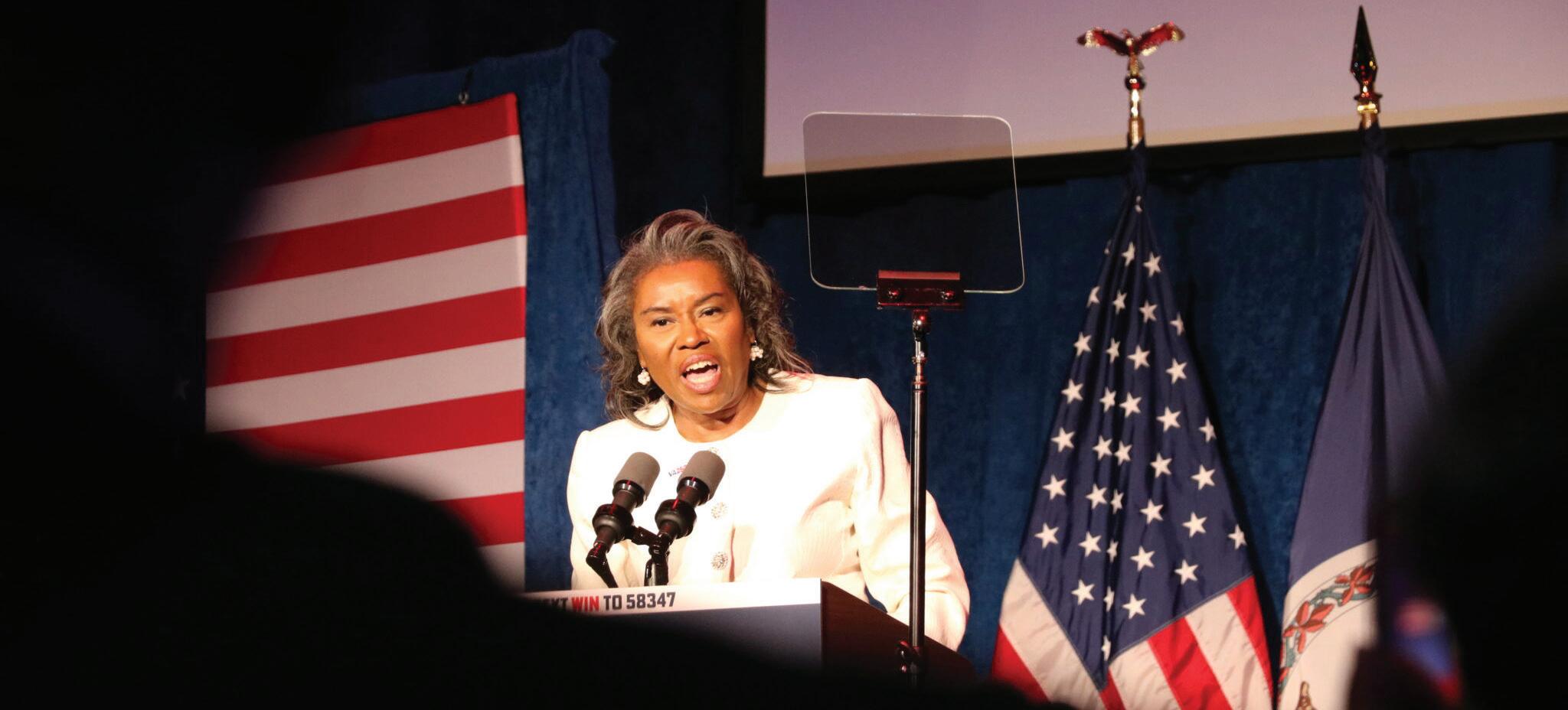
ignorance mimics one that Trump used in the 2024 presidential election.
Republicans nationwide, obviously, would rather spew on this topic than debate cuts to Medicaid and the Supplemental Nutrition Assistance Program, also known as food stamps. Those reductions occurred because of the president’s bill that took money from the poor to pay for tax cuts that overwhelmingly benefited the rich. Republicans in Congress, who control both chambers, passed the legislation.
Such programs impact millions of people, including folks in the Commonwealth. Nearly 2 million Virginians used Medicaid or FAMIS, the state’s health insurance for children, earlier this year. More than 866,000 used SNAP.
Regarding the fixation on trans people, “They’re focusing on this more than issues that affect all Virginians,” Reed Williams told me. The 23-yearold trans woman attended high school in Virginia Beach and is now on the staff of Equality
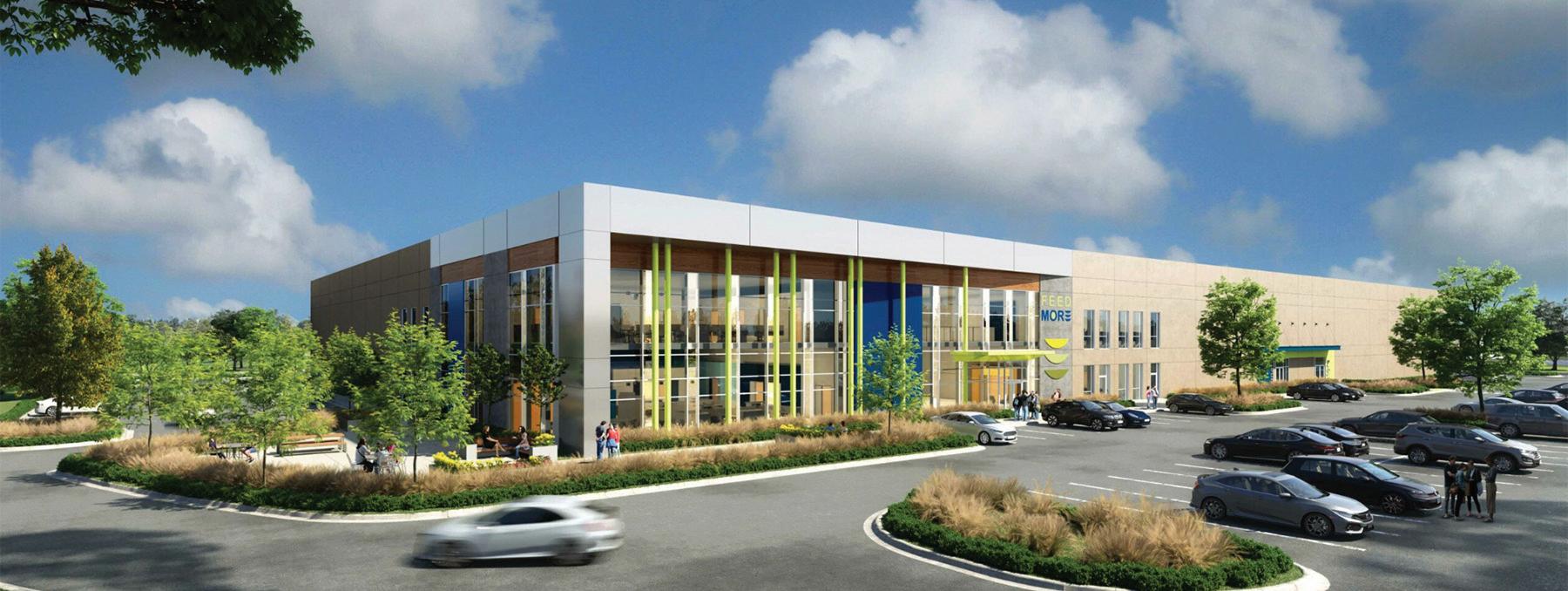
distribution network. The organization is partnering
expand
Free Press staff report
As the federal government shutdown threatens to interrupt Supplemental Nutrition Assistance Program benefits starting Nov. 1, Richmond-area localities and Feed More are joining forces to ensure residents continue to have access to food.
The City of Richmond, Chesterfield County and Henrico County have partnered with Feed More, Central Virginia’s food bank and its network of 380 partner agencies, to help fill the gap for families who rely on SNAP benefits. Together, the localities will contribute more than $200,000 to help Feed More source food, expand its distribution and provide additional support in areas of greatest need.
“When challenges like this arise, we come together to make sure every family has food on the table. I’m deeply grateful to Feed More for stepping up for our neighbors when it matters most,” Richmond Mayor Danny Avula said.
Feed More officials said the funds will strengthen delivery efforts and help maintain food access during the shutdown. Residents can visit feedmore. org to find nearby food pantries and updates about expanded distribution.
“Despite uncertain times, we are focused on working together to overcome a current challenge. I’m thankful to Feed More and our many other partners for providing a boost to residents in need,” said Chesterfield Board of Supervisors Chair Jim Ingle.
Henrico Board of Supervisors Vice Chair Roscoe D. Cooper III said collaboration across jurisdictions is key in addressing basic needs.
“Making sure our neighbors are fed and nourished in this time of need is a fundamental part of public service,” Cooper said. “By standing together as a region and marshaling our community’s vast public, private and nonprofit resources, we can overcome whatever challenges we face in the days ahead.”
Feed More President and CEO Dennis Hatchett said the organization is ready to meet the growing need.
“Food insecurity has so many ripple effects on our neighbors in need — physical health, mental health and overall well-being. We’re ready to answer the call to help ensure children and families across the region have access to the food and nutrition they need,” Hatchett said.
Residents can support the effort by donating money, food
or time. Financial donations can be made at feedmore. org, and The Community Foundation for a Greater Richmond will soon post volunteer opportunities for those interested in helping.
Virginia, a LGBTQ+ advocacy organization.
Williams recently wrote a heartfelt column in the Richmond Times-Dispatch verbalizing her dismay at the attention that conservative candidates place on this issue, when things like the economy and rising prices are much more important. She’s right.
Williams noted, matter-offactly, that she used the girls bathroom from the eighth to 12th grades — one of the overheated talking points for conservatives. Williams had a summer job in City Hall at 16.
“Confusion over my gender could be remedied with a productive conversation, agreement to disagree, or simply moving on,” she wrote. “Virginia’s current fight over transgender people is entirely manufactured.”
I reached out to a spokesperson for Earle-Sears, the current lieutenant governor, about her focus on trans issues, but Peyton Vogel didn’t respond to my messages. Among them: Has Earle-Sears actually discussed
her concerns with transgender individuals, especially those who transitioned during high school?
Besides, it’s not like the topic leads the list of priorities for Virginians. Far from it.
A Virginia Commonwealth University poll in September said that, among the top issues influencing registered voters in the state, 28% named the rising cost of living, followed by women’s reproductive rights (13%) and immigration and education (12%). Similarly, a Washington Post-George Mason University poll this month found just 4% of voters in the Commonwealth said policies about transgender students were the most important issue in the governor’s race. Instead, look at what Virginia is facing: Because of the ongoing shutdown by the federal government, 900 furloughed federal employees have filed unemployment claims in Virginia during the first two weeks of October.
The Trump administration’s
But sure, Republicans, continue to be transfixed on transgender voters. It’s not the first time you’ve scapegoated minorities by race or gender. Going back to at least your Willie Horton ads during the
presidential contest between George H.W.
and Michael Dukakis, you’ve been chock full of stereotyping and fear-mongering. You simply don’t care who you harm in the process. May your gutless ploy backfire.
The writer is a columnist and editorial writer with the Virginia Mercury, where this commentary originally appeared.
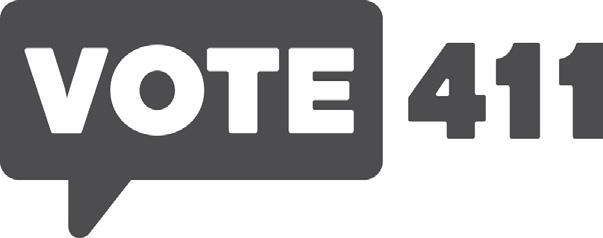
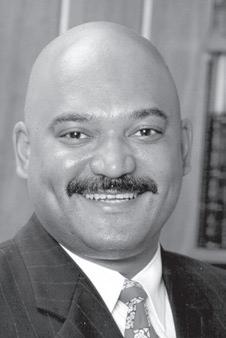
If you are worried about American democracy, you have plenty of company. Who your company is, though, depends on your concern.
Progressives worry that people who are entitled to vote might be prevented from doing so. Conservatives worry that some who do vote might not be entitled to. Both worry that the other side is looking for a way to game the counting.

Fortunately, there is an easy cure for these anxieties: serve as an election officer. As I’ve learned from my own experience here in Virginia, volunteering in the service of democracy is both an education in the mechanics of elections and an antidote to conspiracy theories. When I hear rumors and speculation about ballotstuffing or noncitizens and dead people voting, I know those fearmongers never spent a day working the polls from the inside.
I got a start as an election officer in a roundabout way. In 2004, I joined hundreds of Virginia lawyers volunteering for election protection in that year’s presidential election, trying to ensure that everyone who registered to vote, regardless of party, had the opportunity to cast their ballot in the presidential race. Afterward, a number of us convened to talk about the problems we’d seen and to draw up a wish list of state-level reforms that we took to the General Assembly.
We joined forces with a group of cybersecurity experts at Virginia Verified Voting who had a related mission to address the threat to election machines from computer hacking. At the time, most Virginia localities used what were called direct record electronic (DRE) machines. DREs
were purpose-built computers with touchscreens. They were mostly easy to use but provided no paper trail, making recounts effectively impossible.
Worse, national experts had shown how easily a malicious actor could access the DRE machines to change votes. A hacker would need to change only a small number of votes to alter the outcome of a close election. In the estimation of one expert, the DREs we were using were the worst voting
Main
machines in the country.
The solution offered by the reform coalition was to ditch the DREs in favor of paper ballots that voters feed into an optical-scan ballot counter, with the paper ballots securely stored in case a recount is required. Voting machines are a big investment, making many legislators hesitant, so the lobbying effort took years. Eventually, however, the General Assembly told local registrars they had to move to the paper ballots and scanners that our polling stations use today.
Since then, our legislature has strengthened security protections further to provide for regular audits. Virginia law now lays out precise instructions covering vote counting, ballot and machine security, data storage and routine audits. As registrars from Norfolk, Henrico County, the City of Richmond and Virginia Beach explained to the Virginia Mercury’s team recently, these layers of security measures, together with the presence of election officers from both parties at the polls and during the counting, makes it exceptionally difficult to tamper with vote tallies.
Other elements of our reform coalition’s agenda also made it into law, though that, too, took several more years. Perhaps most important, absentee and early voting have expanded to allow more elderly and disabled

citizens to vote, as well as to accommodate workers with inflexible or unpredictable schedules. On the other hand, the battle over whether citizens who lack a government-issued photo ID can vote may never be permanently resolved. (Currently, the answer is yes.)
By that time, I had decided the best way I could help voters would be to serve as an election officer myself. Under state law, any registered voter can volunteer as a poll worker — and believe me, it is work.
Election officers must undergo training, show up on Election Day by 5 a.m. and stay until 8 or 9 at night when the counting is over and the machines and ballots have been properly secured. Considering the demands, it is remarkable that the median age of poll workers nationwide is 64.
Seeing the process from the inside is especially instructive
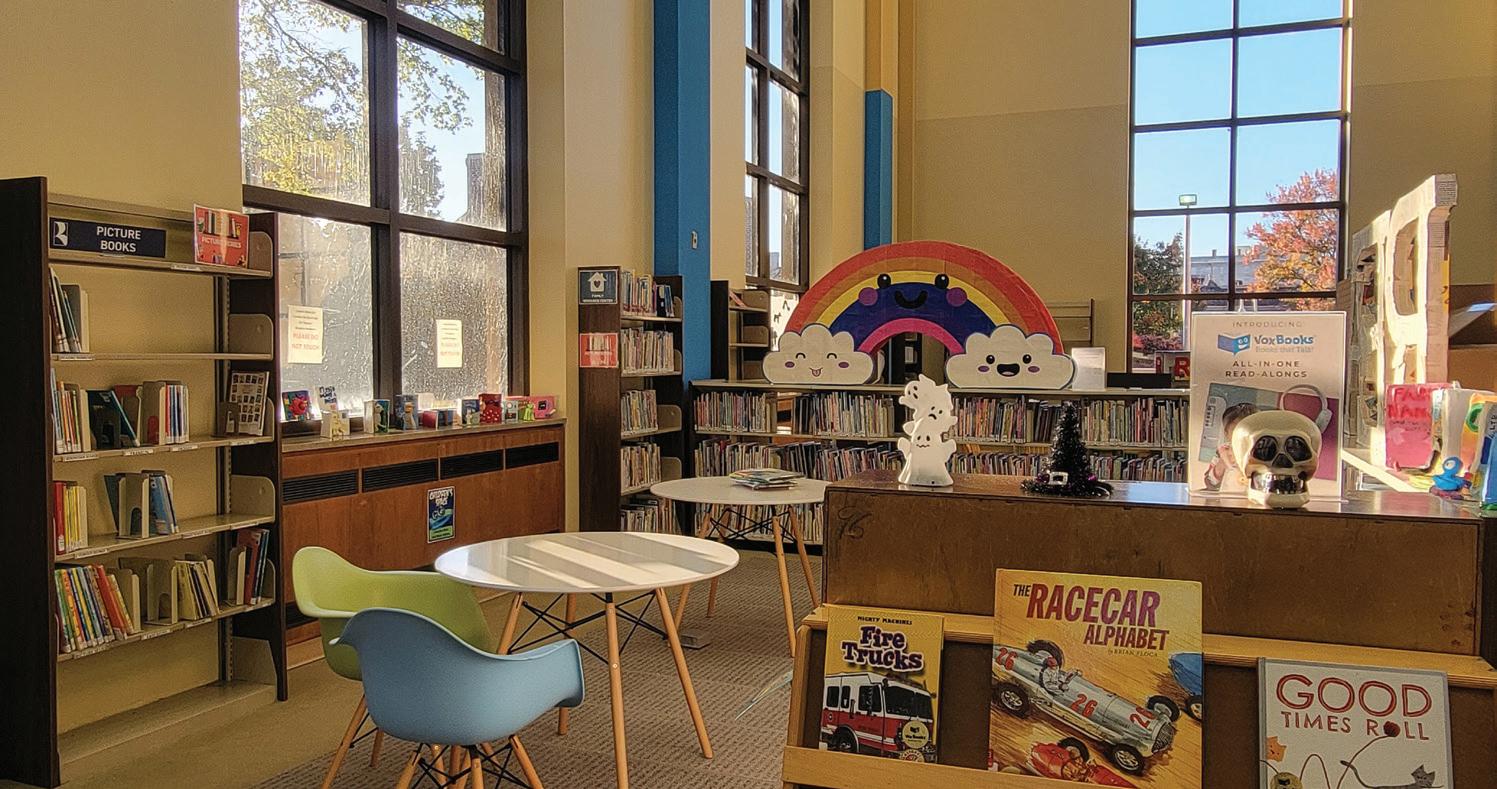
By Zainab Sesay Capital News Service
The popular 1980s show “Reading Rainbow” was rebooted in October at a time when children across the nation struggle with reading.
The show returned earlier this month for free on YouTube, with Mychal Threets as the new host. Threets is called a viral library influencer because of social media posts showcasing his love of books.
The show was initially created to fill the instructional gap for children during summer breaks but ended in 2006, according to IMDb. Reading scores last year dropped two points for both fourth and eighth graders, compared with 2022. This dip accentuates the decline that occurred between 2019 and 2022, according to the National Assessment of Educational Progress, or NAEP.
Less than a third of fourth- and eighth-grade students are proficient in reading by national standards. This means they do not regularly understand written text or interpret the meaning. The problem extends into high school. For 12th graders, scores declined nationally by 3 points, the lowest ever for that report.
Causes for the continued decline in scores after the pandemic range from economic status, environmental obstacles and an over-reliance on screens from an early age. About 80% of children in low-income neighborhoods lose reading skills over the summer due to limited access to reading materials, according to the Reading is Fundamental nonprofit.
Prolonged use of social media can lead to memory deficiency, according to a recent study published in the JAMA Network.
Virginia students have made small gains overall in reading scores post-pandemic, according to state Department of Education
data. No state had increased scores in fourthor eighth-grade reading last year, according to NAEP data. State education leaders have focused on improving math and reading scores, which were previously among the lowest in the nation. The Virginia Literacy Act was passed in 2022 to address early literacy outcomes, and implementation began in 2024.
Valerie Robnolt is an associate professor in Virginia Commonwealth University’s School of Education who has taught for over two decades in elementary school to college-level classrooms, with a focus on reading and literacy. Reading must be reinforced from an early age, she said.
“We’ve been focusing a lot on students reading, you know, short passages, and we need to also work to motivate them to want to read,” Robnolt said.
Although children learn to sound out words at a young age, they should also learn reading comprehension, she said. Both are essential to academic and casual reading.
“It’s important for teachers to provide a model of fluent reading through read-alouds, using high-quality children’s literature,” Robnolt said.
Parents can help children learn to read longer stories by asking them to make predictions about what they think might be happening. With that help, children learn different strategies to interpret new subjects.
The “Reading Rainbow” return to a free platform is significant because many of the parents of children identified as disadvantaged might not be available to read to them or have the funds to access reading materials, according to Robnolt.Beth Morris, youth services coordinator at the Richmond Public Library main branch, understands the strain the pandemic put on parents. Morris suggested that parents quiz children while reading to make sure they understand the storylines.
for anyone convinced that nefarious actors on a mission to destroy American values might be engaged in illegal shenanigans in our precincts, abetted by insiders from the other party. Frankly, that would be hard. Registering to vote requires documentation including a Social Security number, precinct rules require participation from members of both major political parties, and voting procedures make it extremely difficult for anyone other than a registered voter to cast a ballot.
The kinds of scenarios that most people worry about, typically involving impostors voting in place of dead people and noncitizens trying to cast votes, are vanishingly rare. That shouldn’t be a surprise: Casting a fraudulent ballot or voting twice in the same election is a felony offense. The upside potential just isn’t worth jail time.
This is not to say the system
is perfect. Every year, citizens are prevented from voting because their names have been improperly purged from the rolls or they moved homes between elections or they didn’t learn that their precinct location changed. I continue to be disappointed by legislators who are more concerned about the theoretical possibility that one person might vote illegally than by the certainty that barriers imposed in the name of election integrity keep actual, legal U.S. citizens from participating.
I’m also disappointed in my fellow citizens who don’t make the effort to vote, especially in the state and local elections where what’s at stake are the policies that most affect our day-to-day lives.
Democracy has been a rare and precious privilege through much of human civilization, yet most Americans today have grown up taking our right
to vote for granted. Some of our great-grandmothers won the battle for (most) women’s suffrage over a hundred years ago, and the Voting Rights Act of 1965, which finally gave teeth to the 15th Amendment, celebrated its 60th anniversary this year.
The right that people marched, fought, were jailed and even died for is now a bedrock American value. If anyone out there waxes nostalgic for the restrictions in place at our nation’s founding, when the franchise was restricted to white male landowners, they are just bright enough not to say it publicly. But rights, like muscles, atrophy when they aren’t exercised. In nonpresidential elections such as the one coming up in Virginia on Nov. 4, turnout among registered voters typically averages below 50%. Even the last presidential election saw turnout in our state below 70%. Turnout in primary elections, which in heavily red or blue areas typically determines the winner of the general election, is usually in the single digits. And turnout numbers don’t take into account the more than 25% of voting-age citizens who are unable — or don’t bother — to register. Secure elections and voting rights protections are both critical to our confidence in Election Day outcomes. Just as important, though, is that citizens take their own responsibility seriously. Preserving democracy doesn’t mean we all have to serve as election officers, though I recommend it. It does, however, require us to educate ourselves about the issues and the candidates — and then show up and vote. The writer is a lawyer and the Sierra Club’s renewable energy chairperson. This column originally appeared on VirginiaMercury.com and was produced in partnership with Keep Our Republic, a civic education nonprofit.
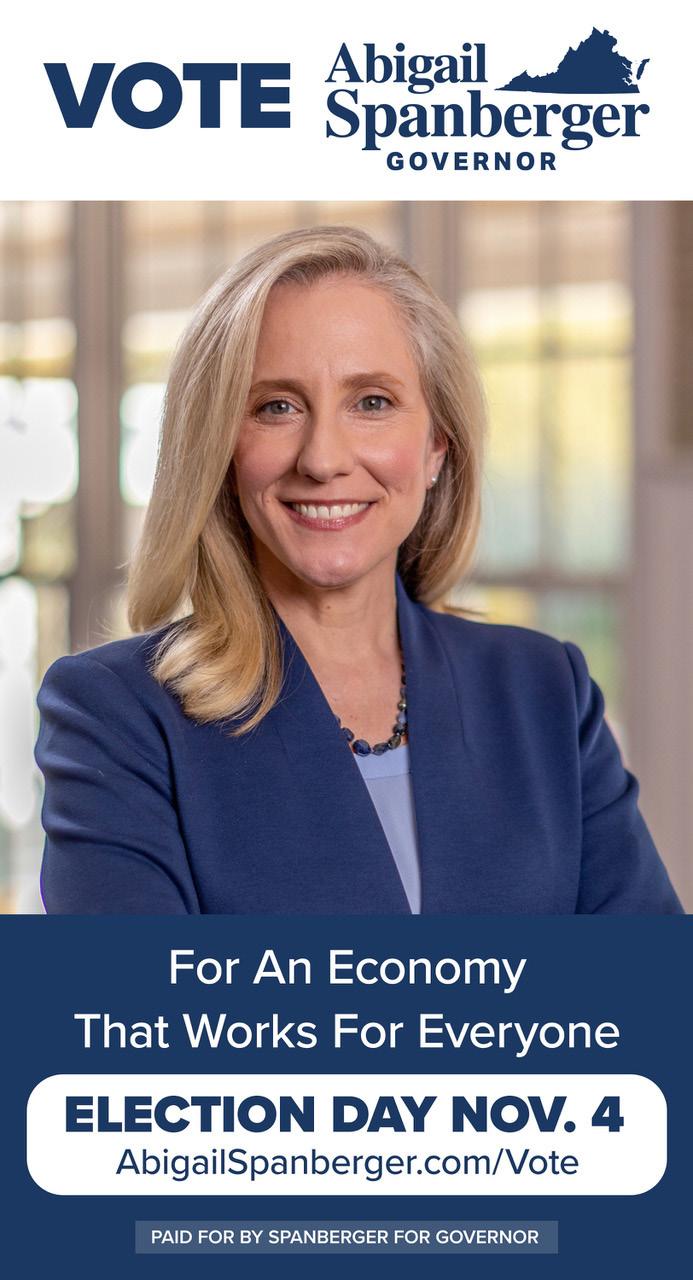
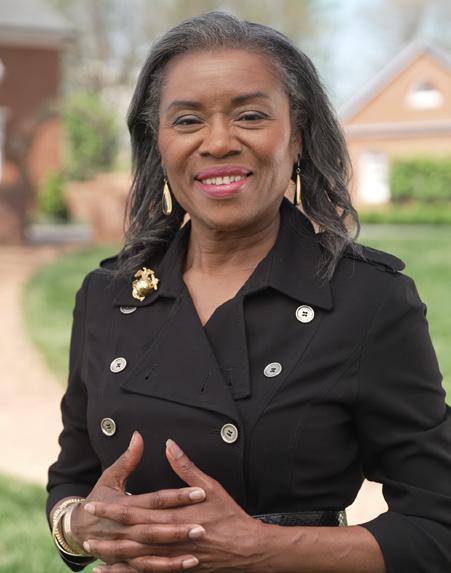

The governor of Virginia is the state’s chief executive, responsible for enforcing laws, overseeing state agencies and proposing a budget. The governor can sign or veto legislation passed by the General Assembly, appoint judges and key officials, and represent Virginia in dealings with other states and the federal government. The job pays $175,000 a year, an amount set in 2013. Under the state constitution, governors serve a single four-year term and cannot serve consecutive terms. The governor and lieutenant governor are elected separately and may be from different political parties.
Virginia’s minimum wage is already set to rise to $12.77 on January 1, 2026, and I support those responsible, inflation-based adjustments because they help workers while giving small businesses the ability to plan ahead. But I do not support rushing to $15 or higher just because that’s what California did. We’ve all seen the results there, higher prices, fewer entry-level opportunities, and businesses cutting hours or closing altogether. That is not the future I want for Virginia.
I believe the real way to raise wages is by raising value. That’s why, as lieutenant governor, I fought to raise salaries for teachers and support staff, and it’s why I’ll keep focusing on creating better-paying jobs through economic growth, career training, and workforce development. Mandates and one-sizefits-all policies hurt more than they help. Virginians deserve opportunity and prosperity, not California-style economic damage.
Virginians are right to be worried about housing affordability. With the median home price over $440,000 and rent climbing every month, families across the commonwealth feel squeezed. Abigail Spanberger claims she will incentivize new construction and protect affordable housing, but her record in Congress tells a very different story.
She supported Biden’s Build Back Better Act, the basis for the Inflation Reduction Act, which the National Association of Home Builders opposed because it piled on new housing code mandates, radical climate goals, and wage requirements that drive up costs. That same law added countless energy mandates, worsening Virginia’s cost-of-energy crisis and limiting the land available for construction. Spanberger also voted for the PRO Act, which would have gutted Virginia’s right-to-work law and imposed restrictions that hurt builders, realtors, and contractors.
Virginia’s minimum wage is set to rise to $12.77 on January 1, 2026. Do you support further increasing the minimum wage to $15 or higher? If so, what timeline would you propose, and how would you ensure the increase balances the needs of workers and small businesses?
With the median home price in Virginia at $443,000 and median rent at $1,700, housing affordability remains a growing concern. What specific policies would you support to lower housing costs and increase the availability of affordable housing across Virginia?
While she talks about protecting affordable housing, she ignores naturally occurring affordable units and instead backs government programs and regulations that risk raising prices and shrinking supply. By the NAHB’s estimate, regulations already account for about 24 percent of housing costs—and Spanberger voted to make them higher.
On top of that, she supports raising the minimum wage to $15, a policy that would cripple construction, and she wants to create yet another interagency housing council, adding bureaucracy instead of solutions.
The bottom line is simple: Spanberger’s record makes housing less affordable. Virginians deserve a governor who cuts red tape, supports right-to-work, lowers energy costs, and unleashes construction. The only way we fix the housing crisis is to build, build, build.
As a Marine, I believe in law and order, and that means securing our borders and enforcing immigration laws. I would absolutely support cooperation with the federal government, including deploying the Virginia National Guard if necessary, to stop illegal immigration and protect Virginians.
When Washington brings resources to the table, we should take advantage of them to strengthen enforcement and keep our communities safe. If the mission is to stop illegal crossings, crack down on drug and human trafficking, and keep violent criminals out of our communities, then I will make sure Virginia is a partner.
Protecting Virginians comes first, and I won’t hesitate to work with the federal government when it means enforcing the law and keeping our commonwealth safe.
Virginia is the world’s leader in data centers, and that industry is critical to our economy, our tax base, and our jobs. At the same time, we have to recognize the unique challenges data centers bring in terms of land use, energy consumption, and environmental impact. I believe the commonwealth’s role is to set clear, consistent, and commonsense standards that balance economic growth with protecting our communities. That means respecting local zoning decisions, ensuring infrastructure keeps pace with demand, and pursuing an all-of-the-above energy strategy so we can power this growth reliably and affordably.
What I won’t support are heavy-handed mandates that drive investment out of Virginia or raise costs on families. As governor, I’ll make sure we keep Virginia competitive, attract cutting-edge industries like data centers, and do it in a way that safeguards our land, our resources, and our taxpayers.
OCT. 24
• Last day to register or update your address to vote a regular ballot for this election
• Voters may register in person after this date, through Election Day, and vote using a provisional ballot OCT. 24 (by 5 p.m.)
• Last day to request that a ballot be mailed to you OCT. 25 (Saturday)
• Local voter registration offices open for in-person voting
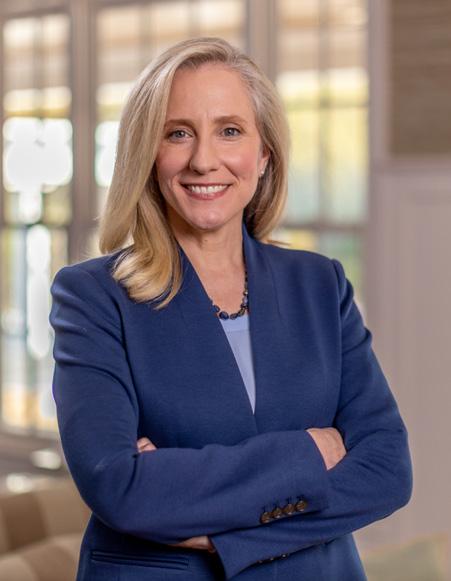

The cost and supply of housing is a top concern for Virginia families, seniors, and veterans as I travel across the commonwealth. Virginia deserves a governor who is focused on lowering costs and giving families more breathing room, which is why I rolled out my Affordable Virginia Plan earlier this year to build more affordable housing, work with localities to respond to Virginia’s unique regional housing challenges, and reduce burdensome regulations that drive up the cost of housing and slow down production. As the next governor of Virginia, I will help direct investments towards housing that families can afford — from incentives for new construction of starter homes to increasing funding for the Virginia Housing Trust Fund. I want to make Virginia the nationwide leader in addressing the housing affordability crisis and make sure more Virginians—including first-time homebuyers—can afford to make our commonwealth their home.
Would you support the federal government deploying the Virginia National Guard to enforce federal immigration policy within the state? Why or why not, and under what circumstances, if any, would you consider such cooperation appropriate?
Virginia is home to over 600 data centers and handles a large portion of the world’s internet and cloud computing services. What role should the commonwealth play in regulating or setting policy around data center development, especially in terms of land use, energy consumption, and environmental impact?
Citizen Portal.
NOV. 1 (Saturday)
• Last day to vote early in-person at your local voter registration office NOV. 4 (Election Day) Vote at your polling place. Polls are open 6 a.m. to 7 p.m.
INFORMATION and LINKS
Register to vote or update an existing registration - https://vote. elections.virginia.gov/Voter Information
• Through Friday, Oct. 24, 2025.
• Register to vote or update an existing registration online using the
I am a former federal law enforcement officer who worked narcotics cases and CIA case officer who tracked cartels and transnational criminal organizations. Given this experience, I know the incredible value of varied agency coordination, but if making the decision today with the set of facts we see on the ground in Virginia, I would absolutely not deploy the Virginia Guard to enforce federal immigration policy within our commonwealth. That task of detaining individuals on immigration detainers should remain within the purview of federal immigration agents, while the task of arresting those for whom an arrest warrant—for any variety of offenses—has been signed should fall to local, state, or federal agencies depending upon the charges. Notably, during my time in Congress, the Virginia Guard deployed to Texas on a border security support mission, and I supported that mission as the authorities and purpose of that mission were clear and appropriate given the guard’s training and statute.
I believe Virginia needs a clear statewide strategy on data centers that helps localities across every corner of Virginia make informed decisions about their best path forward. Virginia can benefit from having data centers here —but to reap those benefits, we need to make sure we are accounting and planning for the energy generation, water, and other resources needed to support them. We also need to make sure they aren’t driving up energy bills for everyone else. I rolled out my Affordable Virginia Plan to lower costs—including energy costs—and as Virginia’s next governor, my strategy will focus on bringing Virginians together to meet rising energy demand while accounting for local resource needs, driving down costs for ratepayers, and supporting goodpaying jobs in this sector.
• Voters may register and vote using a provisional ballot In-Person after Oct. 24, 2025, through Election Day.
• Contact your local registrar’s offices for more information.
EARLY, IN-PERSON VOTING
• Available Monday - Friday and Saturday, Oct. 25 and Nov. 1 through 5 p.m.

• Contact your local registrar’s offices for all early voting and satellite location information.
• Voter registration offices will be open for early voting on Saturday, Oct. 25, 2025 and Nov 1, 2025.
Apply for a ballot to be mailed to you: https://www.elections.virginia.gov/ citizen-portal/
• Through 5 p.m., Friday, Oct. 24, 2025.
• Your request must be received by your local registrar’s office by 5 p.m.
• Apply for an absentee ballot online using the Citizen Portal.
CANDIDATE LISTS
See who is on your ballot by viewing the candidate lists.
POLLING PLACES
Find your polling place: https://vote. elections.virginia.gov/VoterInformation
WINSOME EARLE-SEARS
winsomeforgovernor.com


Virginia cannot have strong schools without strong teachers, and right now we’re losing too many of them to other states and other careers. I absolutely support building on the progress we’ve made with teacher raises, because pay has to be competitive if we want to recruit and keep the best educators. This is why we increased teacher pay by 18% across the board, especially in highneed areas like math, science, and special education. But pay alone isn’t enough. We need to restore respect for the teaching profession, give teachers more support in the classroom, and make sure parents and administrators are partners, not adversaries. That means cutting red tape, improving discipline policies, and focusing resources where they have the most impact. To fund these initiatives, I will prioritize education in the state budget, cut wasteful spending, and grow Virginia’s economy so we can sustain higher salaries long-term.
Additionally, I am going to invest in early childhood education and ensure we attract and retain the very best early childhood educators as well. However, my plan is about more than just raising pay; it’s about creating an environment where teachers feel valued, supported, and empowered to do the job they were called to do.
I believe every parent deserves the right to choose the best education for their child, whether that’s a public school, a charter school, a private school, or homeschooling. Public funds should follow the student, not the system, because education is about children, not bureaucracy. School choice, including vouchers, gives families real options and hope for a better future. I do not believe this harms public education; in fact, competition pushes every school to do better. At the same time, I will continue to invest in our public schools, raise teacher pay, and hold all schools—public or private—accountable for results.
Educational fairness means giving every child, regardless of zip code or family income, the opportunity to succeed. As governor, I will put parents in charge and ensure Virginia’s education system is built around students, not politics.
Our administration has seen successes in healthcare, like our Right Help, Right Now initiative, which has tripled the number of crisis centers and distributed life-saving drugs. We’ve also increased coverage to much-needed areas like OB-GYN and psychiatry. And we’re adding more doctors through commonsense programs like SB 995, which allows foreign-trained doctors to gain a Virginia license if they work at least two years in an underserved area.
Additionally, fiscal responsibility is essential to keeping taxes low and making sure the state has enough money for our healthcare programs. So we should embrace a host of pro-business, pro-growth policies while also ensuring only those who really need social services receive them. Those who are ablebodied and of-age should not receive taxpayer-funded healthcare coverage without even applying to work part-time, volunteer, or go to school.
Teacher shortages are a pressing issue in Virginia, where teacher pay remains below the national average despite a raise this year. What is your plan to improve teacher recruitment and retention, especially in high-need areas and subjects, and do you support another raise? How would you fund these initiatives and ensure long-term sustainability?
What is your position on the use of public funds for private school vouchers in Virginia? Do you believe vouchers help or harm public education, and how would you address concerns around educational fairness and accountability?
Healthcare costs continue to rise for many Virginians. As governor, how would you work to contain costs while ensuring access to quality care? Do you support continued protection and expansion of Medicaid in Virginia, and if so, how would you approach funding and implementation?
I do want to see continued protection and expansion of Medicaid in Virginia, but under those stipulations. I will prioritize rural hospitals. I want to flip the conversation from one of closure to one of opportunity: How can we be an attractive place to start a hospital? Access to infrastructure, an abundance of doctors and other human capital, and a high quality of life are all essential to answering that question.
In short: our efforts are already helping to keep down the cost of healthcare. I’ll continue in that common-sense vein as governor. I will also continue our administration’s fiscal sanity to keep all of our programs at peak efficiency and meet the needs of Virginians.
Everywhere I go, Virginians tell me the same thing: it’s getting harder to make ends meet. Groceries, childcare, utilities, and transportation are eating up more and more of family budgets, and too many hardworking people feel like they’re falling behind even with full-time jobs.
As governor, I will tackle the cost-of-living crisis head-on. That means cutting taxes on essentials so families keep more of what they earn, reining in utility costs by pursuing an all-of-the-above energy strategy for affordable and reliable power, and expanding access to childcare through public-private partnerships that increase availability without driving up prices. I will also invest in better roads and transit options so Virginians spend less time and money getting to work.
My focus will be on targeted, sustainable relief policies that work for both urban and rural communities, not one-size-fits-all mandates from Washington. At the end of the day, it comes down to common sense: lower costs, more opportunity, and a government that puts families first.
Virginia’s universities should be first and foremost places of learning, not laboratories for DEI ideology. I applauded UVA’s decision to dissolve its DEI office because it was a win for merit, opportunity, and the American Dream. When institutions take federal funding, accountability naturally follows. Taxpayers have a right to demand transparency and results. That’s not overreach, that’s responsibility.
As governor, I will make sure our universities stay focused on academic excellence, fiscal responsibility, and preparing students for real careers. I also believe our boards of visitors must be reformed to reduce political gamesmanship and strengthen accountability to Virginians. My priority is simple: protect free speech, cut wasteful DEI bureaucracy, and ensure every dollar—state or federal—goes toward real education, not politics.

Every student in Virginia should have access to a world-class education. Like many states, Virginia faces challenges recruiting and retaining teachers, but Virginia can be a leader in addressing this challenge. My Strengthening Virginia Schools Plan will focus on increasing funding for teacher residency and apprenticeship programs, expanding the recruitment pool to include federal employees, teaching assistants, and servicemembers transitioning to civilian life and increasing pay for Virginia’s teachers to keep our best and brightest in the classroom. We also need to boost grow-your-own teacher preparation programs, which can help to strengthen the teacher pipeline in rural areas of the commonwealth, and improve career pathways for middle and high schoolers to enter the teaching profession through increased collaboration between K-12 schools and institutions of higher education. As governor, I look forward to working with the general assembly to give localities the option to raise funds for public school construction and renovation.
The Virginia Press Association is a nonprofit trade organization that represents print and online news outlets across the state.
With the rising cost of essentials such as groceries, utilities, childcare, and transportation, many Virginians report difficulty making ends meet—even with full-time employment. As governor, what specific policies would you propose to ease the cost-of-living burden for low- and middle-income residents? How would you ensure these efforts are targeted, sustainable, and effective across both urban and rural communities?
I do not support efforts to defund our public schools, and unfortunately, my opponent has a decades-long track record of wanting to do just that. But as a mom of three daughters in Virginia public schools, I believe we need to focus on strengthening our schools and expanding opportunities for all students— especially at a time when Virginia ranks dead-last in the country in student math recovery. That includes making sure Virginia has an accountability system in place that provides clear insights into how our kids are progressing and allows parents and teachers to use these insights to drive improvements that respond to the needs of Virginia students. My Strengthening Virginia Schools Plan will provide the commonwealth’s schools with the resources they need to prepare every student—regardless of their zip code—for success and give parents more options within our public school system.
Everywhere I go across the commonwealth, I hear from seniors, families, and Virginians who are worried about increasing healthcare and prescription drug costs. I know there are steps we can take right now to save Virginians money and prevent Virginians from falling into medical debt. In Congress, I helped lead the charge to give Medicare the power to negotiate for lower drug prices, capped the cost of insulin at $35 dollars for Medicare beneficiaries, and stood up to transnational pharmaceutical companies. Particularly in the wake of the passage of the disastrous “Big Beautiful Bill,” which my opponent has praised, we need to use every resource at the commonwealth’s disposal to protect Virginians’ access to healthcare they can afford. As governor, I intend to work with the general assembly to address shortfalls in Virginia’s budget and protect safety net providers, and work with our attorney general to defend critical programs Virginians rely on. Additionally, my Affordable Virginia Plan will focus on preventing Virginians from falling into medical debt by cracking down on pharmacy benefit managers and stopping predatory billing practices. Virginia deserves a governor who is focused on lowering healthcare costs for Virginians.
As I’ve talked to families across Virginia, I hear from families who are working harder and harder, yet finding it more difficult to get by, which is why I’ve rolled out my Affordable Virginia Plan to lower healthcare, housing, and energy costs for Virginia families. As governor, I’ll lower prescription drug costs and protect access to affordable healthcare coverage. Additionally, I want Virginia to be the nationwide leader in addressing the housing affordability and supply crisis. And I want to see Virginia become more energy independent and become a global leader in developing the energy technologies of the future—all while saving Virginia consumers money along the way. At a time when Republicans in Washington—backed by Winsome Earle-Sears—are trying to make life more expensive for everyday Virginians, I want to work with both parties in Richmond to make sure every Virginian can afford to call the commonwealth their home.
The Trump administration has recently delved into Virginia’s public university system, resulting in the resignation of UVA’s president under pressure and investigations into George Mason University’s diversity, equity and inclusion practices. As governor, would you welcome that type of federal involvement in matters typically handled by university boards? If not, what specific actions would you take to oppose it? Do you support changes to how universities are governed or their boards appointed to reduce political or external influence, and if so, what changes would you propose?

Founded in 1881, VPA supports local news through training, legal resources, advocacy, and recognition programs. The association’s mission is to strengthen the role of newspapers in their communities and highlight the importance of a free press in sustaining democracy.
Virginia’s public universities are incredible assets to our communities and our economy, and should be recognized for their immense value. It has been sad to watch Governor Youngkin stand by as the Trump administration aggressively attacked the University of Virginia and now continues to do the same at George Mason University. These political games are an attack on academic freedom, Virginia’s institutions, and our economy. As governor, I will expect the members of our commonwealth’s boards of visitors to be uniquely focused on strengthening the individual universities they serve, and that the members of our boards demonstrate the fortitude necessary not to kowtow to any administration – whether it be in the Trump administration in Washington or mine in Richmond. As governor, I will ensure that all board appointees I select understand that they must demonstrate a standard of leadership that puts academic excellence, Virginia’s students, and the strength of Virginia’s public colleges and universities ahead of any political agenda.
LOCAL NEWS PROJECT (VLNP)
The Virginia Local News Project is a nonprofit organization dedicated to sustaining, supporting and growing local news in every Virginia community.

Founded by the Virginia Press Association in 2013, VLNP provides programs, and to help strengthen the digital capabilities of local news, train the next generation of journalists, protect press freedoms, and grow the public’s understanding
JOHN REID
johnreidforvirginia.com



The lieutenant governor of Virginia presides over the state Senate and is first in line to succeed the governor. The officeholder also serves on several state boards and councils. The position pays $36,321 annually, a salary set in 1998, and is officially part-time. Unlike the governor, the lieutenant governor may serve unlimited four-year terms.

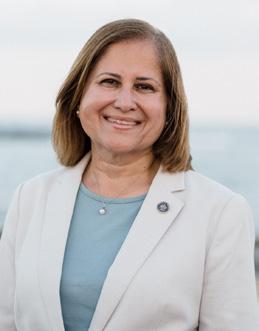
ghazalaforvirginia.com
As lieutenant governor, I will approach my responsibility to preside over the Senate with humility and fairness. My role is not to dominate debate but to ensure the chamber functions smoothly, rules are respected, and every voice has a chance to be heard. When called upon to cast a tie-breaking vote, I will use a clear set of principles: fidelity to the Constitution, commitment to limited and accountable government, and putting the interests of Virginia families first.
Too often, partisan politics in Richmond lead to gridlock or heavy-handed solutions that make life harder for working people. I believe tie-breaking votes should not be cast based on party loyalty but on what best advances freedom, affordability, and opportunity for Virginians. For example, I would oppose measures that expand bureaucracy, raise taxes, or limit parental rights. At the same time, I would support policies that lower costs, strengthen public safety, and expand choice in education and health care.
My goal as presiding officer is to ensure transparency in how the Senate conducts its business. I will foster respect across party lines by encouraging open debate and refusing to use the gavel as a partisan weapon. Virginians expect their elected leaders to govern responsibly. In the rare moments when my vote decides the outcome, I will honor that responsibility with the seriousness it deserves, guided by conservative, common-sense values, and a focus on the long-term well-being of our commonwealth.
The lieutenant governor’s office is unique in that it carries influence without a direct legislative agenda. I see that as an opportunity to use the visibility of the office to lift up voices too often ignored in Richmond—working families struggling with high costs, parents seeking better schools for their kids, small business owners weighed down by red tape, and communities left behind by one-size-fits-all policies.
I intend to be a convener, not just a presider. That means bringing together stakeholders from across the commonwealth—local leaders, entrepreneurs, educators, health providers, law enforcement, and faith communities—to find solutions rooted in real-world experience, not ideology. For example, I will use the platform of the office to highlight workforce and childcare challenges, expand conversations on affordable housing, and ensure veterans and firstresponders get the support they deserve.
Because I do not carry a voting card in the Senate, I have the freedom to build bridges and elevate issues without being tied down to partisan maneuvering. That also means holding Richmond accountable when it forgets that its purpose is to serve the people, not itself.
TIE-BREAKING VOTES and PRESIDING OVER the SENATE
As lieutenant governor, you would be responsible for presiding over the Virginia Senate and may be called upon to cast tie-breaking votes on key legislation. How would you approach this role to ensure fairness, transparency, and the effective functioning of the Senate across party lines? What values or decision-making principles would guide you when voting on highly contested or partisan issues?
The lieutenant governor doesn’t sponsor legislation or serve as a voting member except in ties. How would you use the platform and visibility of the office to influence policy, elevate underrepresented issues, or convene stakeholders across Virginia?
I believe the lieutenant governor should be the voice that cuts through bureaucracy and red tape. By traveling the commonwealth, listening, and shining a spotlight on practical solutions, I can help shape the debate in a way that benefits all Virginians. My goal is to use this office to champion freedom, opportunity, and fairness—not to grow government, but to ensure it works for the people it serves.
Virginia families deserve rising paychecks and a stronger economy, but government mandates are not the best way to achieve that. A rapid push to $15 or higher sounds simple but risks hurting the very people we want to help. Small businesses—the backbone of our communities—often operate on razorthin margins. Forcing higher costs overnight can mean higher prices, fewer hours, or even layoffs. That does not help families; it makes things worse. The better path is building an economy where wages rise because opportunity grows. I want to see small businesses flourish, expand, and compete for workers by paying more. That means cutting unnecessary regulations, reducing taxes, and making Virginia the best place to start and grow a business. It also means investing in workforce development and apprenticeships so Virginians have the skills that command higher pay in a free market.
We also cannot ignore inflation. Families know that a bigger paycheck does not mean much if groceries, gas, and rent keep climbing. Tackling inflation and the cost of living must be part of the conversation.
Virginia’s minimum wage is scheduled to rise to $12.77 by January 2026. Do you support increasing it to $15 or higher? What timeline and economic factors would inform your position, especially regarding small business impact and cost of living?
I do not support rushing to $15 or higher without considering the impact on small businesses and rural communities. Instead, I support policies that give every Virginian a chance to climb the ladder of opportunity—policies that make it easier to find work, keep work, and build a career that supports a family. That is how we achieve real, lasting prosperity.
The dream of homeownership should not be slipping further out of reach for Virginia families, yet rising prices and limited supply are making it harder than ever for young people and working families to buy a home. The answer is not more bureaucracy from Richmond, but smart policies that expand supply, lower costs, and respect local needs.
First, I support a first-time homebuyer tax credit of up to $25,000 to help families build equity rather than being stuck renting forever. That kind of targeted relief empowers working- and middle-class Virginians without inflating the market further. Second, I believe in local flexibility—not a one-size-fits-all housing mandate from the state. Counties and cities should be able to use tools like bonding authority to build housing options that fit their communities’ character and needs.
With home prices and rents outpacing income for many Virginians, what specific policies would you support to increase affordable housing availability and reduce barriers to homeownership across the commonwealth?
We must also tackle red tape. Excessive permitting, zoning restrictions, and outdated state regulations add unnecessary costs to new housing. By streamlining processes and encouraging innovation, we can create more affordable options. Partnerships with community colleges, trade schools, and the private sector can also help train more builders and contractors to meet demand.
Finally, expanding pathways to affordable rentals while protecting property rights will ensure stability for those not yet ready to buy. Housing is about more than shelter—it is about families putting down roots and communities thriving. My approach is focused on empowering localities, cutting costs and giving every Virginian a fair shot at the American dream of homeownership.
Healthcare in Virginia is too expensive, too complicated, and too limited in choice. Families worry about affording a new baby, seniors struggle with prescription costs, and small business owners cannot keep up with premiums. Politicians in Richmond have layered on red tape but have not fixed the problem. I believe Medicaid must remain strong for the vulnerable who rely on it, but we also need to make the system more efficient and accountable. Protecting Medicaid does not mean expanding bureaucracy—it means ensuring the program delivers care effectively without waste.
More broadly, we must tackle the root issue: rising costs. Virginians deserve price transparency so they know what procedures and medicines cost before they walk into a hospital or pharmacy.
We need more competition—allowing insurance purchases across state lines and encouraging innovative models like telemedicine. And we should reduce mandates that drive up premiums and limit choices.
How would you work to protect and improve healthcare access for Virginians, particularly those who rely on Medicaid? What role do you believe the state should play in addressing rising healthcare costs and protecting vulnerable populations?
The state’s role should be to empower patients, not bureaucrats. I want families to be in charge of their healthcare decisions, with real options that fit their needs. That means fostering competition, innovation, and transparency to bring down costs and expand access. My approach is rooted in conservative, common-sense principles: protect the vulnerable, ensure efficiency, and trust Virginians to make the best choices for themselves and their families.
I will approach the role of lieutenant governor (LG) with the same degree of attention and thought that I have brought to my legislative work over the past six years. As the tie-breaker in the Virginia Senate, the LG plays a crucial role, especially in a narrowly-divided Senate.
In addition to carefully reviewing all legislation that is under debate on the Senate Floor, I will engage with my Senate colleagues on both sides of the aisle, discuss legislation and policy proposals with a variety of stakeholders, research and analyze the issues, and base decisions on facts, data, and merit. Over my two terms in the Senate, I have learned the vital importance of listening to the perspectives of different parties, compromising when possible, and being able to explain one’s own position to others. I will bring these same approaches to the role of lieutenant governor.
As the Chair of the Senate Education and Health Committee, Vice Chair of the Joint Commission on Health Care, member of the Virginia Housing Commission, as well as numerous other commissions and boards, I have built the critical relationships across state agencies and developed policy insights that will help me to serve as a strong, capable, and effective leader in Virginia’s next administration. I will use my platform to address the most pressing issues facing Virginia, including fully funding public education to put every student on the path to success, ensuring every Virginian has access to affordable health care, and bringing down costs on everything from housing to child care to make life more affordable in Virginia.
Recent reports show that Virginia families are going into debt in order to put food on the table; prices are rising much faster than wages. With the rising costs of housing, childcare, health care, and basic needs, a basic living wage is essential. That’s why I support raising the minimum wage to at least $15 and establishing an alignment of wages with inflation and cost of living. I have championed efforts to increase the minimum wage and supported legislation to eliminate minimum wage exemptions for domestic workers and farm workers. When workers are paid a living wage, those dollars go right back into the local economy, supporting small businesses, entrepreneurs, and communities.
My husband and I arrived in Richmond in 1991 as a young newlywed couple. Our income was limited so we lived paycheck to paycheck, severely restricted all discretionary spending, and frequently had $50 or less at the end of every month after paying our rent. These experiences have all served to make me attuned to the hardships and insecurities that so many in our communities face because housing prices continue to go up.
All Virginians deserve housing that they can afford without having to sacrifice putting food on the table or paying for lifesaving medication. I will continue my work to find solutions that make housing more affordable, increase higher density housing development, support financial products that help first-time homebuyers, and decrease eviction rates. I was a leader in the general assembly in finding solutions to ensure people can afford clean, safe and decent housing, including my Faith in Housing Act to allow faith-based institutions and non-profits to build affordable housing on land they own.
Republicans in Washington have passed a bill, which my opponent supports, that will rip away health care coverage from 322,000 Virginians and put rural hospitals at risk of closing. We have already begun to see the closure of clinics and hospitals in Southwest Virginia. These federal cuts to Medicaid will leave vulnerable Virginians without access to critical health care and will have ripple effects across our entire health care system. Virginia needs new leaders who take these cuts seriously and act to ensure all Virginians have access to affordable and quality health care, including reproductive health care, safe and legal abortion, contraception, and low-cost prescription drugs. As the Chair of the Senate Education and Health Committee and as the Vice Chair of the Joint Commission on Health Care, I am fully aware of the looming crisis facing Virginia with the potential loss of Medicaid expansion, Congressional failure to reauthorize the Enhanced Premium Tax Credits, and the devastating effects these cuts will have, especially on our rural communities. That’s why, in 2025, I wrote the budget amendment to protect Medicaid in Virginia. I will be focused on responding to this crisis.
johnreidforvirginia.com

Every parent deserves the right to choose the best education for their child. That is why I support expanding charter schools, lab schools, and education savings accounts. These tools give families real options and create competition that raises the bar across all schools. Parents—not politicians or bureaucrats—should be in the driver’s seat when it comes to their children’s education.
On SOL reform, it is time to move beyond a test-driven system that too often narrows learning. Assessments should measure mastery of skills and knowledge, not just test-taking ability. I would support reforms that reduce “teaching to the test,” incorporate career and technical readiness and give schools more flexibility in how they demonstrate student success. Our goal should be excellence, fairness, and preparation for the real world. Education should prepare students for life—college, career, and citizenship—not just a multiple-choice exam. By expanding choice, respecting parents, and reforming outdated testing models, we can restore rigor, fairness, and opportunity to Virginia’s schools. Stronger schools mean stronger families, and that is the foundation for a stronger commonwealth.
Every Virginian deserves to be treated with dignity and respect. Marriage equality is protected under federal law, and I do not support efforts to overturn that. Families should never be caught in the crossfire of politics.
If I were called upon to cast a tie-breaking vote on issues affecting LGBTQ+ Virginians, my guiding principles would be fairness, individual liberty, and equal protection under the law. As a conservative, I believe in limited government. That means government should not intrude into private lives or relationships.
At the same time, I will stand firmly against measures that foster discrimination or divide our communities. My focus is on building a Virginia where every family can thrive, where opportunity is open to all, and where the rights of individuals are respected. We may not always agree on every issue, but we can agree on treating each other with respect and ensuring that freedom and dignity are preserved for every Virginian.
I believe Virginia’s universities should be accountable first and foremost to Virginians—not to Washington, and not to outside political agendas. Federal micromanagement of our schools is not the answer. The best way to protect academic integrity is through transparency, accountability, and strong boards of visitors who reflect the diversity of Virginia’s communities and viewpoints. I support reforms to make these boards more balanced and less political, with a focus on student outcomes—graduation rates, affordability, and workforce readiness. Universities should be centers of learning, not partisan battlegrounds. We need to protect free inquiry, encourage debate, and prepare the next generation to thrive. As lieutenant governor, I will work to ensure higher education in Virginia is focused on opportunity, affordability, and excellence—not ideology or outside interference.
REPUBLICAN
JASON MIYARES
jasonmiyares.com
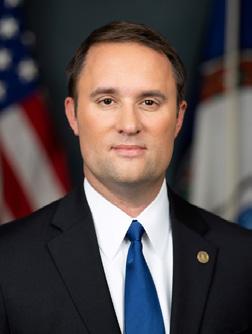

The Miyares campaign declined to provide answers for the VPA/VLNP Voter Guide.
ABORTION and STATE vs. FEDERAL LAW
If federal restrictions are imposed on abortion medications like Mifepristone, would you defend Virginians’ access under existing state law, or would you support enforcing the federal limits within Virginia?
JONES: I will always defend Virginians’ abortion rights under state law, and I look forward to protecting those rights in our Constitution in November. Virginia women deserve the right to make their own healthcare decisions, and as attorney general, I will use every tool available to defend these rights against federal attacks and ensure every Virginian can make personal healthcare decisions free from political interference. As a delegate, I eliminated unnecessary barriers to abortion and safeguarded Virginians’ right to birth control. I also served on the board of the Virginia League of Planned Parenthood to protect those rights and ensure women had access to critical preventive services, including breast cancer screenings.
By contrast, my opponent has an extreme anti-abortion record: urging the Supreme Court to overturn Roe v. Wade, endorsing an abortion ban, voting repeatedly against Virginia’s Reproductive Health Protection Act, aligning with anti-abortion extremists, and attempting to defund Planned Parenthood – the same agenda now being carried out under the Trump administration.
MIYARES: No response.
USE of NATIONAL GUARD in FEDERAL IMMIGRATION ENFORCEMENT
Would you support the federal government’s use of the Virginia National Guard to enforce immigration policies in the commonwealth? What legal standards or precedents would guide your decision?
JONES: This is federal overreach by Donald Trump to distract voters from rising prices and his disastrous economy. Fighting crime is critically important, but you make communities safer by doing the hard work over the long run: building strong law enforcement departments, supporting officers with good training, and building ties with local communities – not

Virginia continues to debate the role of school choice and the effectiveness of the Standards of Learning (SOL) system. As lieutenant governor, what is your position on expanding school choice options such as charter schools and education savings accounts? Additionally, would you support reforms to Virginia’s SOL assessments, and if so, what changes would you propose to improve educational outcomes and fairness across the commonwealth?
While same-sex marriage is currently protected under federal law, recent court challenges and legislative proposals have raised concerns about the durability of those protections. As lieutenant governor, how would you approach legislation affecting the rights of LGBTQ+ Virginians, including marriage equality? If called to cast a tie-breaking vote on such issues, what principles would guide your decision?
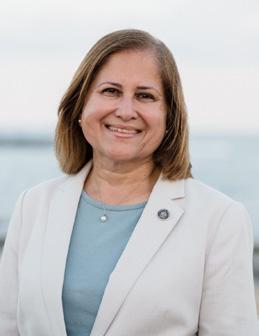
As a public educator for nearly three decades, as the Chair of the Senate Education and Health Committee, and as a mom of two daughters who attended our public schools, I am strongly opposed to school vouchers and privatizing public education. I have stood up to Governor Glenn Youngkin’s attempts to direct public school dollars into private hands. My opponent, John Reid, supports Governor Youngkin’s school voucher agenda. Reid said [in January 2022] it was “time to just close the public schools,” and he wants to funnel taxpayer dollars into expensive private schools instead. A recent JLARC report found that Virginia public schools have faced severe underfunding to the tune of $6.6 billion.
For the last two sessions, I have led efforts in the general assembly to prioritize funding our public schools, and we’ve been able to increase public education support by almost $3 billion. However, more needs to be done to strengthen Virginia’s education system, both K-12 and post-secondary opportunities. To ensure all children in Virginia can enjoy quality education that prepares them for well-paying jobs or higher education, we must fully fund public education and lower the costs of post-secondary credentials and college degrees.
We have a fundamental responsibility to ensure that this country’s ideals of justice, equality, and fairness are a reality for all, including LGBTQ+ Virginians. After the disastrous Dobbs Supreme Court decision, Justice Clarence Thomas expressed interest in rolling back the legalization of same-sex marriage. Virginia’s constitution currently does not protect same-sex marriage and leaves the rights of LGBTQ+ Virginians vulnerable to the whims of the conservative Supreme Court that has proven willing to take away freedoms.
In the past general assembly session, I voted for a constitutional amendment that would protect marriage equality. My opponent, John Reid, said he would have voted “no.” I am the candidate that can be trusted to guarantee Virginia enshrines marriage equality into our constitution, and I will fight for the right of every Virginian to marry the person they love.
The Trump administration has recently delved into Virginia’s public university system, resulting in the resignation of UVA’s president under pressure and investigations into George Mason University’s diversity, equity and inclusion practices. As Lieutenant Governor, would you welcome that type of federal involvement in matters typically handled by university boards? If not, what specific actions would you take to oppose it? Do you support changes to how universities are governed or their boards appointed to reduce political or external influence, and if so, what changes would you propose?
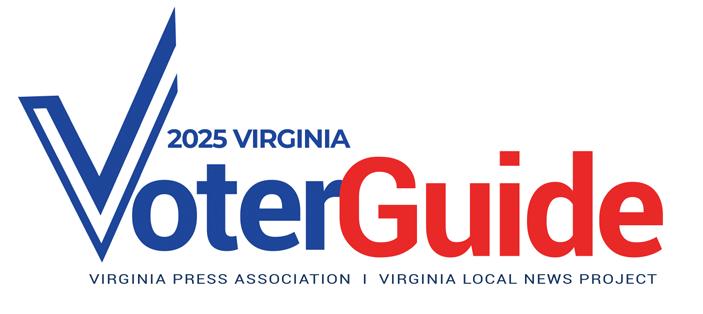
The resignation of UVA President Jim Ryan is a deeply troubling escalation in the partisan attacks against higher education, and it should alarm every Virginian who believes in academic freedom. As a lifelong educator and as a mom, I believe Virginia’s universities, both public and private, should remain dedicated to serving the people of the commonwealth with excellence and independence and not serve as playgrounds for partisan agendas.
Over the past few years, Governor Youngkin has replaced highly qualified and experienced board members with individuals whose top credentials appear to be ideological alignment and partisan loyalty. Many of the new appointees have expressed open hostility toward the initiatives and programs that support student learning and success. As Virginia’s next lieutenant governor I will continue fighting to protect opportunity and academic freedom across every corner of our commonwealth.
The attorney general of Virginia is the state’s chief legal officer, responsible for providing legal advice to the governor and executive agencies, representing the state in court and defending the constitutionality of state laws. The office also handles consumer protection, public safety and other legal matters affecting Virginians. The $150,000 per year salary was set in 2006. The attorney general serves a four-year term.
by grabbing headlines. As attorney general, I’ll absolutely work with partners in the District of Columbia and Maryland to fight crime over the long term in our region, and I will ensure our National Guard is ready to support us in emergency situations as intended.
MIYARES: No response.
PROTECTING PUBLIC OFFICIALS from THREATS
What role should Virginia’s attorney general play in preventing and responding to violent threats against school boards, election officials, and other local public servants? How would your office coordinate with local law enforcement in such cases?
JONES: As attorney general, my office will send a very clear message that violence and hate-driven acts will not be tolerated in our commonwealth and that if you engage in violence, you will be held accountable. I will work closely with the Virginia State Police and local law enforcement to ensure Virginians are protected as threats arise.
MIYARES: No response.
With online scams, identity theft, and deceptive business practices on the rise, what specific tools or strategies would you use as attorney general to protect Virginia consumers, particularly seniors and vulnerable populations?
JONES: As an assistant attorney general in the Office of Consumer Protection, I fought to prevent higher grocery prices by working to block the Albertsons-Kroger merger and took on corporations unfairly raising prices. As Virginia’s next attorney general, I’ll bolster the Office of Consumer Protection and fight back against corporate landlords, predatory lenders, scams, and corporate fraud on behalf of consumers. I’ll do this by cracking down on illegal price fixing and discrimination in the housing process, holding companies accountable for illegally deceiving Virginians with junk fees and deceptive pricing, and helping Virginians navigate complex healthcare billing schemes so they can fight back
against insurance companies.


JAY JONES jayjones.com
Answers to each of the questions below were provided by the Jay Jones campaign.
By contrast, Jason Miyares has done little to stand up for Virginia’s consumers. Time and again, he’s sided with special interests instead of Virginia families, whether it’s letting utility companies hike up electricity bills, letting corporate landlords off the hook, or failing to protect people from predatory lenders.
MIYARES: No response.
PARTISANSHIP and the AG’S OFFICE
The attorney general serves as the commonwealth’s top legal officer. How would you maintain the office’s independence and impartiality in politically sensitive cases, especially when they involve state agencies or the actions of elected officials?
JONES: As Virginia’s next attorney general, the only client that I will ever be beholden to is the people of Virginia. Unlike Jason Miyares, I’ll make decisions based on the laws and the facts, not on political pressure or personal relationships. That means if a state agency or elected official violates the law or infringes on Virginians’ rights, I won’t hesitate to hold them accountable, regardless of their position or party. And I’ll never back down and follow orders from Washington politicians, no matter which party is in power.
MIYARES: No response.
GUN VIOLENCE and PUBLIC SAFETY
What is your position on enforcing and defending existing gun safety laws in Virginia? Are there specific public safety initiatives or legal tools you would prioritize to address gun violence in communities across the state?
JONES: Guns are the leading cause of death for Virginia kids, and as attorney general, I will not stand for it. As a delegate, I expanded background checks, passed a law holding people accountable who allow children to access loaded guns, and got guns out of the hands of domestic abusers – all measures that Jason Miyares voted against. And as an assistant attorney general, I put the nation’s largest ghost gun manufacturers out of business.
As attorney general, I’ll work closely with local law enforcement and commonwealth’s attorneys’ offices, making sure they have access to the most
up-to-date technologies to trace gun crimes and prosecute bad actors, and increase interagency cooperation with regional partners. I’ll crack down on unscrupulous gun dealers who are not following the law – unlike my opponent, who has spent his administration catering to his gun lobby endorsers and refusing to hold bad gun dealers accountable. To target the root causes of gun violence, I’ll expand violence interruption programs, including placing more anti-violence coordinators on the ground. Finally, I’ll hold gun manufacturers who created the gun violence epidemic accountable for stopping it, like cutting off the flow of illegal guns and using settlements to fund violence interruption and gun safety programs.
MIYARES: No response.
How would you use the attorney general’s office to protect civil rights and combat discrimination in Virginia, including in areas such as housing, employment, policing, and voting access?
JONES: We must ensure every Virginian is protected in their civil rights and civil liberties every single day. That’s why one of my top priorities as attorney general is expanding the Civil Rights Division, including broadening its authority to combat predatory practices in housing and employment to lower costs for Virginians.
I’ll crack down on housing discrimination by holding lenders and landlords accountable for preying on Virginia renters. As a former member of AFGE 1403, I’ll strengthen enforcement against workplace discrimination and wage theft, so that every Virginian has a fair shot at earning a decent living without fear of retaliation or bias. And as I did with the NAACP, I’ll protect the right to vote by fighting back against suppression tactics and defending the ballot box so every voice in Virginia is heard.
Our current attorney general, Jason Miyares, has turned a blind eye to these abuses. He’s left Virginians unprotected from predatory landlords, ignored discrimination in the workplace, and done nothing to ensure fair treatment in our justice system. As attorney general, I’ll make sure this office stands up for all Virginians and delivers real protections, every single day.
MIYARES: No response.
As part of this election-heavy issue, we’ve gathered every reasonable argument for staying away from the polls in the days ahead, and listed them below. The evidence is overwhelming and the conclusion undeniable.

The old blues singer had it right: “When a lady gets the blues, she hangs her head and cries. When a man gets the blues, he grabs the train and rides.” The relationship between poverty and family breakdown has always been undeniable.
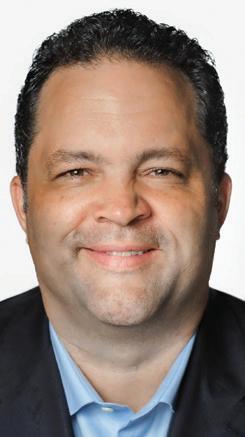
For decades, conservatives have rightly sounded the alarm about family breakdown — declining marriage rates, rising single parenthood, children without stable households. Strong families are the foundation of strong communities. But here’s what we need to be honest about: You cannot build strong families on poverty wages. The past year has made this undeniable. Grocery prices remain high. Rent keeps climbing. Child care costs are crushing families. MIT’s Living Wage Calculator shows even the cheapest county in the U.S. now requires $33.82 per hour for a modest two-parent household to cover basics. Against a $7.25 federal minimum wage, families are drowning.
Here’s what America literally cannot afford to forget: This year, videos went viral across MAGA
social media claiming Donald Trump would raise the minimum wage to $25 an hour. The videos were false — Trump never made that promise. But their popularity revealed something crucial: Even Trump’s base knows the current wage system is broken. When working-class Americans across the political spectrum are
that hungry for higher wages, it’s time we stopped treating this as partisan and started treating it as a family crisis.
So let’s imagine the president of the United States was actually willing to establish a familysustaining wage. What would happen?
Marriages would increase. Geoffrey McAdam in Indiana works full time, earning just under $47,000 a year, and can’t afford independent housing, much less support a family. Research shows that when male wages decline, marriage rates plummet — not because values changed, but because men like Geoffrey don’t feel they can fulfill the provider role. Financial stress is the No. 1 cause of divorce. With familysustaining wages, couples could weather emergencies instead of one car repair destroying their
marriage.
Fathers could be present.
Men working multiple jobs miss Little League games, homework help and dinner conversations.
Men like Geoffrey who can’t afford housing delay fatherhood altogether. When fathers earn family-sustaining wages, they can work one job and actually be there.
Children would thrive. When parents aren’t working 60 to 80 hours just to survive, they’re home. Research shows minimum wage increases improve children’s health outcomes, educational achievement and emotional wellbeing. Child neglect reports drop — not because parents suddenly improve, but because they have resources and capacity to care properly.
Anneliese Jackson works in an Elgin restaurant earning $9 an hour after eight years, alongside single mothers who miss their children’s childhoods working exhausting shifts. With $30 an hour in Chicago, those mothers could work one job, be home for dinner, help with homework. The impossible child care math — $10,000 to $15,000 per year per child versus $15,080 annual earnings at $7.25 an hour — would finally work.
Communities would strengthen. When workers have money
Friends who are frustrated by the current White House regime still ask me, “Where is Obama?”
As if he might miraculously arise again in the political skies like Mighty Mouse singing, “Here I come to save the day!”
Dream on, I point out.
Having served two full terms, Barack Obama has maxed out of his constitu tional eligibil ity.
But behind the scenes, he has found more to do than, say, add to the rising outrage over President Donald Trump’s demolition of the East Wing of the White House.
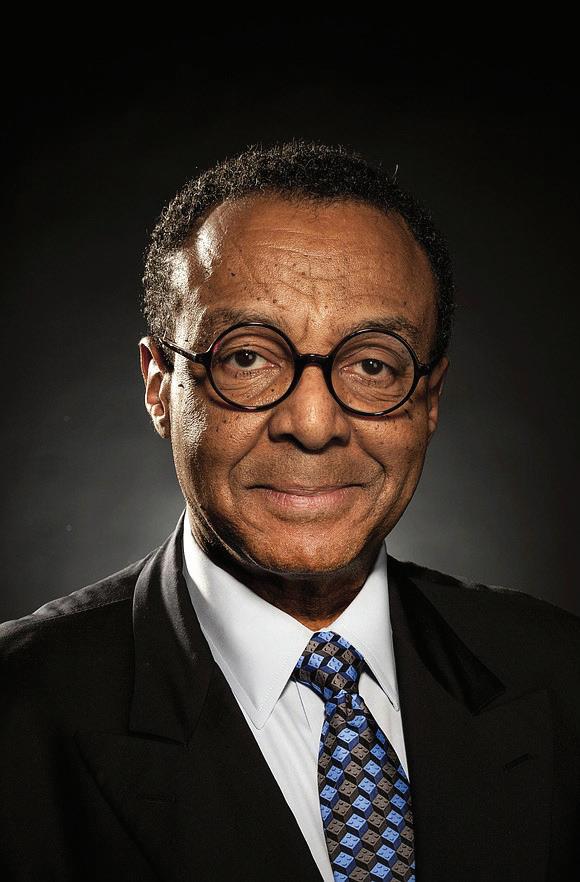
Specifically, Obama has lent his support to a plan to counteract Trump’s plans to lock in a Republican majority in the House of Representatives through gerrymandering. Unfortunately, that effort looks a lot like gerrymandering itself.
Republicans in several states, at Trump’s urging, have set about an unprecedented mid-decade wave of redistricting. Typically, redistricting happens every decade, after the U.S. census. However, Trump has accurately intuited that the thin GOP majority in the House is in peril thanks to his highly polarizing policies.
To help extend Trump’s absolute control of the U.S. government, Texas Gov. Greg Abbott convened a special session of the state legislature last summer to redraw Texas districts in a way that is likely to deliver five more Republicans to Congress.
In late July, Obama spoke with his former attorney general, Eric Holder, about how Democrats should respond. Notably, both
Obama and Holder have been outspoken advocates of independent commissions to draw congressional districts free of the political gerrymandering. Holder chairs the National Democratic Redistricting Committee, which bills itself as fighting extreme gerrymandering and creating fair maps, and Obama has endorsed its efforts.
According to an in-depth Washington Post report, Obama and Holder concluded that those aspirations would have to be put on hold and that the Democrats would have to fight fire with fire.
At about the same time, California Gov. Gavin Newsom, a Democrat, met with legal experts to explore his state’s options, including how to work around a constitutional requirement of nonpartisan redistricting — without looking too hypocritical.
The situation brings to mind an old saying well known to observers of politics in the Windy City. They are the words, uttered more than a century ago, by the notoriously colorful, corrupt and charismatic Alderman Paddy Bauler: “Chicago ain’t ready for reform.”
It’s easy for wags on the other side of the partisan divide to call out Newsom, Obama and Holder for abandoning their high ideals but, at this point, to stick to apolitical redistricting in blue states looks a lot like unilateral disarmament.
Obama and Holder supported Newsom on the grounds that his plans for redistricting were temporary and required the approval of California’s voters.
By mid-August, Obama had become a national advocate
for Democrats taking up the redistricting fight. Illinois also got into the action when Texas Democrats slipped away to the Land of Lincoln for two weeks to temporarily block a GOP vote on the new map.
When Texas Republicans threatened to arrest the dissident lawmakers and remove them from office, Obama called in to one of the Democrats’ meetings at a secret location in Illinois to lend support to their stance — and later released a portion of the call to the public.
A few days later, at a Martha’s Vineyard fundraiser for Holder’s redistricting committee, Obama gave his full-throated endorsement of the California proposal.
Efforts to redraw U.S. House districts for partisan advantage have been taken up in Republican-led Missouri, where the legislature approved revised districts but the changes are being legally contested, and officials in more states are considering following suit.
So to those who are wondering, Obama is doing his part for his party as it struggles to unify itself after its devastating defeat by Trump’s well-oiled machine. That machine operates at a scale of thoroughgoing corruption and coercion that would have blown Bauler’s mind. The U.S. government is in desperate need of reform. The question is whether the Democrats, in their post-Joe Biden funk, are able to sell the American electorate on the proposition that they can deliver it.
Obama, a politician who knows a thing or two about overcoming corrupt political machines, can help the Democrats make a convincing case.
The writer is a columnist for the Chicago Tribune.
in their pockets, they spend it locally. Church attendance increases when parents have Sundays off. Volunteer rates rise. Little League teams get coaches.
Taxpayers would save $65 billion annually. Right now, we subsidize corporate payrolls through food stamps, Medicaid and housing assistance. That’s corporate welfare. A $25 federal minimum wage, phased in gradually, would reduce government dependency dramatically. If the minimum wage had kept pace with both inflation and increases in corporate productivity since 1968, it would be $25 today. Workers haven’t gotten less productive — corporations have gotten vastly more profitable while wages stagnated. And with AI poised to drive corporate productivity dramatically higher over the next five years, that gap will only widen unless we act now. The writer is a former president and CEO of the NAACP and a professor of practice at the University of Pennsylvania.
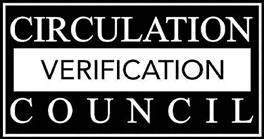



As a high school student, I’ve seen Virginia schools suffer from underfunding under the Youngkin and Earle-Sears administration. Lt. Gov. Earle-Sears’ slogan says, “Let’s keep a good thing going,” but was her administration really good? No. Gov. Glenn Youngkin and Earle-Sears vetoed many bills that would have positively affected Virginia students. They cut 30% of the budget of the Office of School Quality, which aims to correct low test scores, achievement gaps and chronic absenteeism. This left teachers and students with fewer resources to benefit
their education, hurting Virginia’s future job growth.
The Youngkin and Earle-Sears administration is also responsible for a $201 million budget shortfall for educators. By not resolving this issue, the administration forced districts and school boards to delay the hiring of teachers and leave necessary positions vacant.
These cuts to Virginia’s education system are unacceptable, which is why we as Virginians should support Abigail Spanberger. Her plans would help Virginia’s schools by providing the funding that schools need to give the best education possible
In Virginia politics, we often say that the Attorney General’s Office is where law and politics collide. It determines whether our justice system will serve all Virginians equally — or become a politicized weapon of a partisan actor. As Black Virginians and Democrats approach this critical elec tion, one truth must be clear: We cannot af ford to leave our attorney general can didate behind. We have to rescue Jay Jones by voting for him. For decades, the Attorney General’s Office has been known as the people’s lawyer — defending state agencies, enforcing consumer protection laws and safeguarding Virginians’ civil rights. In recent years, that mission has been clouded by partisanship. Instead of serving justice, the office has too often served political ambition. Virginia deserves an attorney general who restores professionalism and purpose — one focused on protecting citizens, not posturing for cameras. That person is Jay Jones.
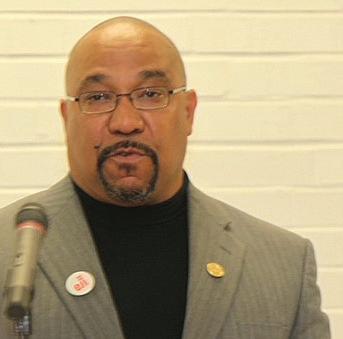
Democrats reclaim the House of Delegates — her ability to deliver on issues like reproductive freedom, environmental protection and voting rights will depend on who occupies the Attorney General’s Office. Every major initiative to change Virginia will face legal challenges. The question is whether
returning citizens rebuild their lives. Jay Jones understands that justice is not an abstract idea — it’s about how government touches everyday people. His career has shown that he has both the compassion and the courage to make the law serve everyone.
This election is about more than one man. This election is about how Virginia will be governed in the next four years. If Abigail Spanberger wins the governorship — and
those challenges will be met by an attorney general who believes in government working for people or one who uses the courts to block progress. Jay Jones will defend the law and the governor’s agenda on behalf of the citizens who voted for it. He will be a partner in governance, not an obstacle to it. Jay Jones’ background is a testament to what public service looks like when grounded in family, community and principle. The son of former Del. Jerrauld Jones and grandson of a pioneering Norfolk judge, he comes from a lineage that believes deeply in fairness and civic duty. He could have chosen the private sector and made a fortune. Instead, he chose public service. As a member of the House, Jay Jones fought for criminal justice reform, affordable health care and environmental protection. He listened to working families, stood with law enforcement reformers and supported programs that help
Let’s address the controversy directly. Jay Jones’ 2022 text message comments were wrong and completely out of character as anyone who has met Jay Jones, including the Republicans he served with in the General Assembly. Judging by his record, they seemed to have come out of left field — and he owes those affected and the people of Virginia a sincere apology. Words do matter. Perfection is a goal, not a requirement for seeking public office. But demanding accountability should not be a political weapon. The rush by some Democrats to distance themselves from Jay Jones raises uncomfortable questions about equity and how Black politicians are treated by the Democratic Party. We have seen it before, and it needs to be addressed. Mistakes by white politicians are quickly forgiven while Black candidates are sometimes not seemingly afforded the same grace. Abandoning Jay Jones on the campaign trail sends the wrong message to many Black voters.
Equally questionable is the outrage from some Repub -
for Virginia’s students, as well as rejecting the efforts to divert funding for schools to pay for voucher programs. And during this uncertain time — when the federal government is cutting school lunch programs — we need a governor who is willing to stand up to President Donald Trump and continue to make sure that no kid goes hungry.
JEFFREY QURESHI Richmond
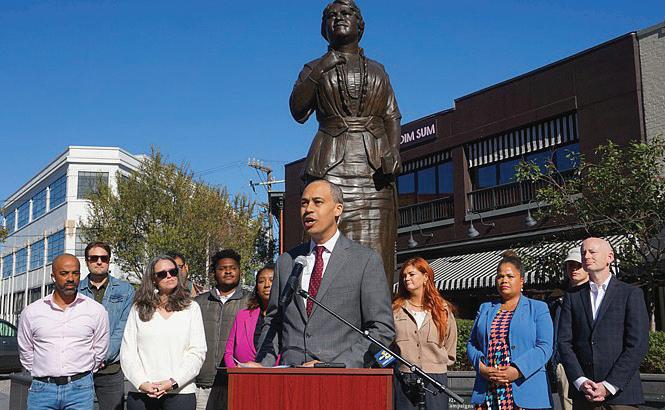
licans, especially their 2025 political candidates’ rings hollow when weighed against their silence on the January 6th insurrection and the pardoning of those insurrectionists. January 6th was not a text message; it was an attack on our democracy and that insurrection cost actual lives. Jay Jones was wrong — but his critics’ opportunism says more about them than it does about him.
The bottom line is that the Attorney General’s Office must once again become a place of justice, not politics. Jay Jones will return that office to its statutorily defined role in the Commonwealth instead of turning it into a partisan political operation. He will make the office a true pillar of justice,
prioritize fair sentencing and rehabilitation over political posturing, and safeguard reproductive rights and voting access instead of taking rights away from Virginians. We see enough division in Washington. It’s time for Richmond to do better.
Anyone who thinks my comments come from partisan zeal need only ask former Attorney General Mark Herring about me. He will tell you that I was one of his toughest critics on issues of civil rights and justice. My position has been consistent — both parties have fallen short of providing equal protection and opportunity for all Virginians. The statistics that highlight the difference between being Black and white in Virginia are stark and real. But
my case for Jay Jones is built on principle and pragmatism. Politics needs to be removed from issues of justice. Black Virginians and every community that makes up the Democratic coalition want leaders who will protect the legal and the policy foundations they care about. If we want an attorney general who will defend the Virginia Constitution, uphold justice and work alongside a Democratic governor and a Democratic-led General Assembly to move Virginia forward, Jay Jones is the choice. WE cannot afford to leave him behind. WE have to rescue Jay. The writer is an attorney and former president of the Loudoun County branch of the NAACP.
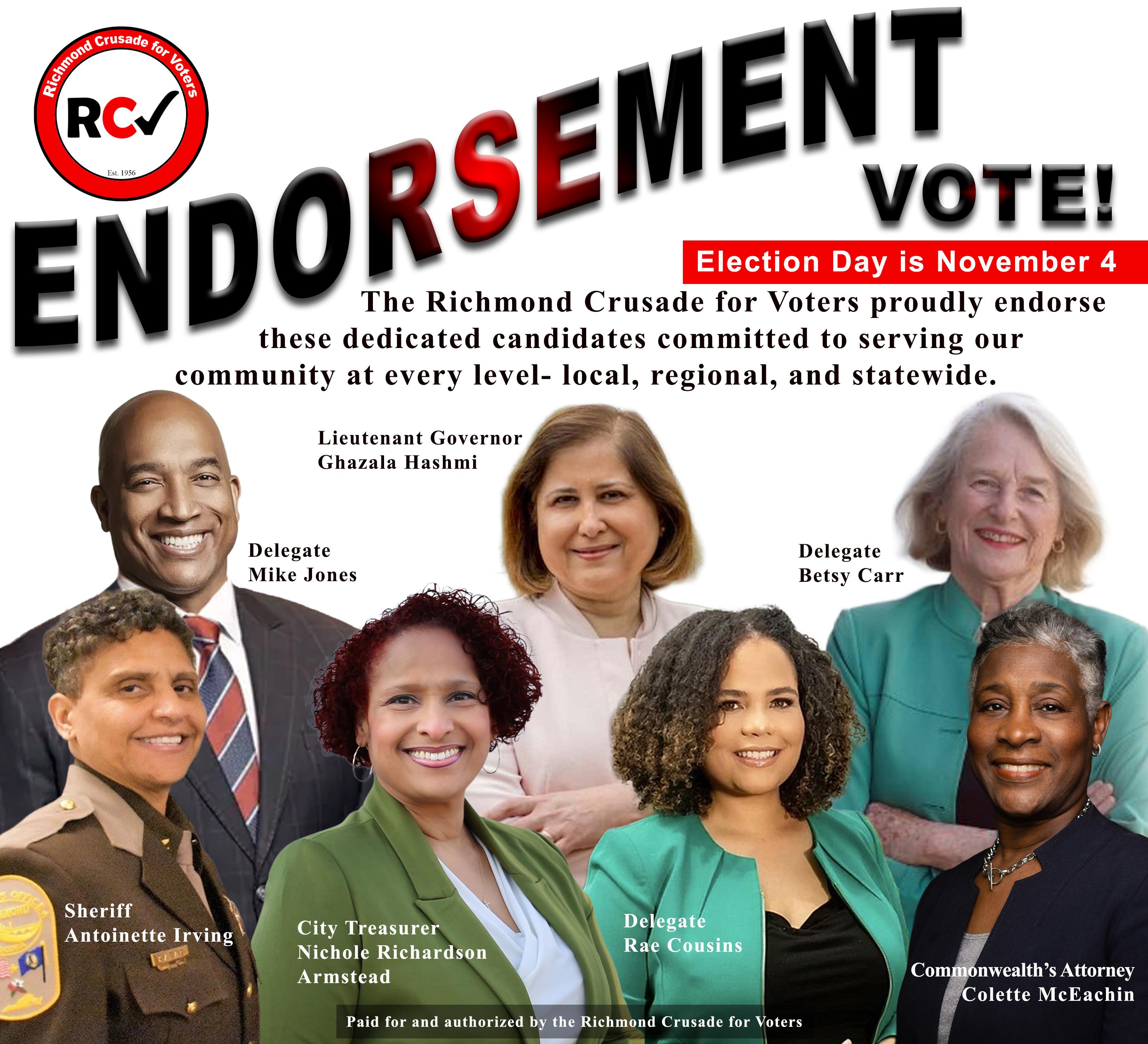
By Tyler Blake VCU Capital News Service
Sports betting has become a cultural phenomenon ever since a U.S. Supreme Court decision in 2018 that gave states the go-ahead to legalize sports gambling. And mobile sportsbooks have become the preferred medium for bettors.
According to the Pew Research Center, 1 in 10 adults say they have placed an online sports bet within the last year. And 22% say they placed bets on sports this year, including online, with friends in something like a fantasy league or pool or at a casino-type location.
Bettors wagered more than $510 million in Virginia on sporting events in August, according to the Virginia Lottery. Of the total bets placed, over $506 million was wagered through mobile sportsbooks.
Virginia allowed its first legalized sports bets in January 2021. That year, the Virginia Council on Problem Gambling saw a 114% increase in calls from state residents seeking help with problem gambling.
Gambling itself is addictive in a similar manner as alcohol and drugs, according to Carolyn Hawley, president of the Virginia Council on Problem Gambling.
“What we’ve found is that [the correlation] between gambling and substances are so similar, that gambling itself is considered the first behavioral addiction,” Hawley said.
Because gambling is so accessible through mobile devices, young people are at a much higher risk for developing gambling addictions than before, she said. It can be done anytime from anywhere.
“Gambling is a part of life that it wasn’t, perhaps, for most individuals in previous gen-
erations,” Hawley said.
Celebrities and social media influencers have jumped on the bandwagon, taking sponsorships from gambling sites and promoting gambling to their fans.
Some youth surveyed in an Australian study reported that celebrities and influencers who promote gambling make it seem “okay” and “acceptable” to gamble.
Hawley, who has a young child, has seen firsthand the impact of the marketing strategies.
“I mean, my 6-year-old son just came home from school this week talking about gambling, and I know it wasn’t because of the work that I’m doing,” she said.
The Virginia Council on Problem Gambling has seen a dramatic increase in the number of calls received in the past six years, Hawley said.
“Since 2019 to 2024, we’ve had about a 1,500% increase in total calls,” she said. “We’ve [also] had an over 200% increase in people specifically asking for treatment support for a gambling problem.”
There has also been a significant demographic shift in callers since sports betting became legal in Virginia.
“It’s very heavily male and young callers,” Hawley said. “That 18-to-24 age group, and that 25-to-34 age group.”
The problem extends beyond just sportsbooks.
“What we’re seeing a lot is youth being initiated into gambling, you know, that this is a fun social activity with dad,” Hawley said.
Gambling a ‘normalized’ activity
Matthew Britt, a certified peer recovery specialist for the Virginia Partnership for Gaming and Health, said he was addicted to gambling. He recalled some of his earliest memories of gambling with relatives that led up to him de-
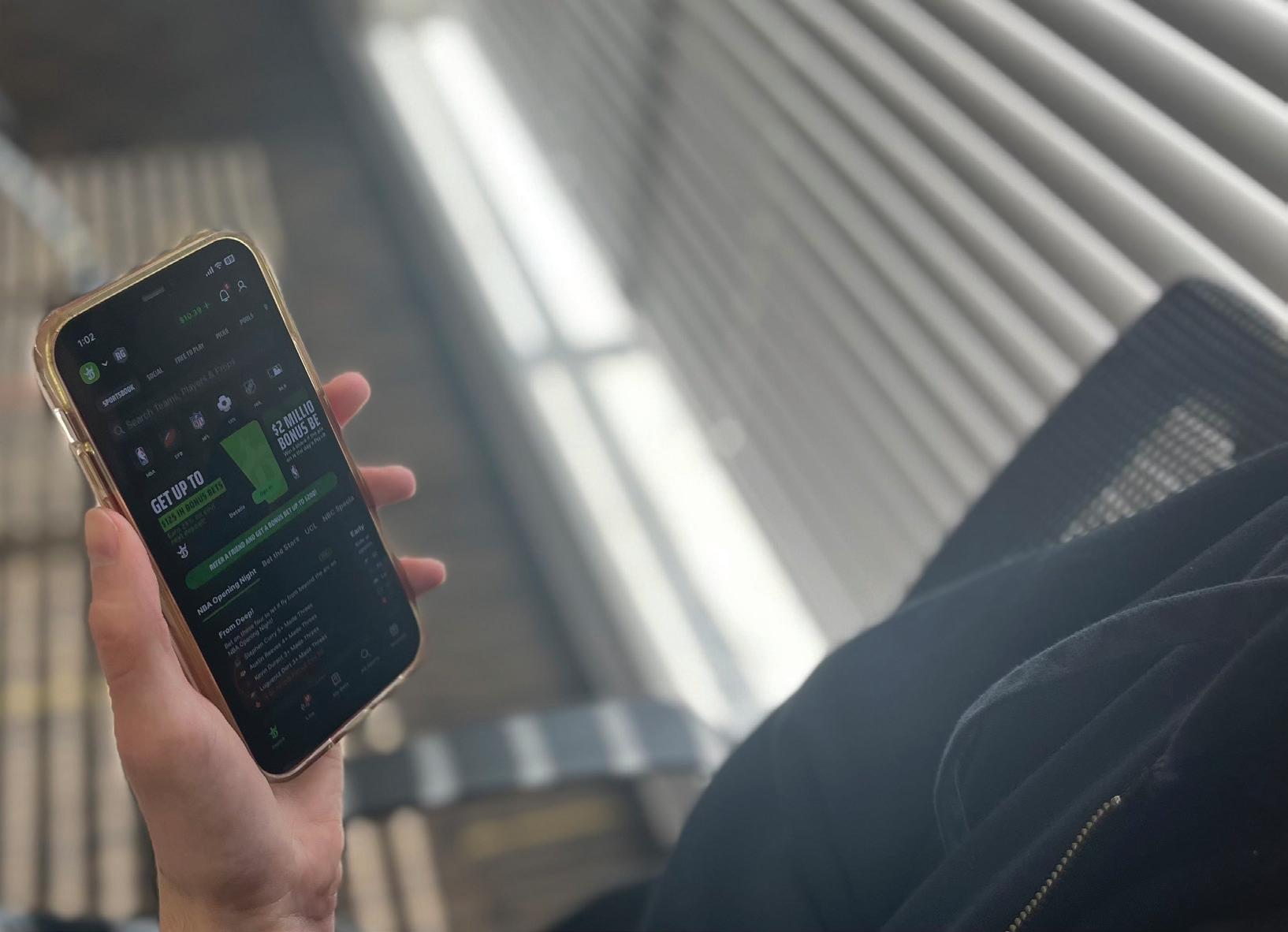
more accessible.
veloping an addiction.
“I can see as far back as playing spades or crazy eights, games like that with my grandfather, for pennies,” Britt said.
Gambling is already so accessible that it does not matter whether someone has an addictive personality draw, he said.
“I have an uncle that would give out and still does give out lottery tickets for Christmas,” Britt said. “The men’s poker night was around me growing up as well.”
It becomes hard for many people to place a negative tag on gambling because it is so normalized, Britt said.
He also said his attention-deficit/hyperactivity disorder, or ADHD, is another contributing factor to his addiction. The prevalence of “at-risk” and problem gamblers was higher in individuals with ADHD symptoms than in those without symptoms, according to a study published by the National Library of Medicine.
Free Press staff report
The Richmond Kickers ended their USL League One season on a high note Saturday night, defeating Forward Madison 5-1 in the third and final leg of the Henny Derby at City Stadium.
Richmond (8-17-5, 29 points) got off to an aggressive start as Adrian Billhardt tested Madison’s defense early with two close chances in the first 20 minutes. His first shot in the 10th minute sailed just over the crossbar, and his second went just wide after breaking through on a counterattack.
Madison (8-11-11, 35 points) took the lead in the 23rd minute, but the Kickers quickly regained control. Goalkeeper James Sneddon exited with an injury in the 33rd minute, replaced by veteran Pablo Jara, who would go on to make key saves. In the 36th minute, Simon Fitch sent the ball across the box to Nils Seufert, who beat a defender and curled a shot into the back of the net to level the score. Two minutes later, Emiliano Terzaghi followed up his own blocked shot to give the Kickers a 2-1 lead, with Billhardt credited for the assist.
The momentum carried into stoppage time, when Billhardt’s corner kick found Marcelo Lage,


goal
against
who headed it home to extend the lead to 3-1 at halftime.
Jara protected the advantage with a diving save on a Madison penalty in the 50th minute, keeping the home crowd energized. In the 63rd minute, Darwin
Espinal found Billhardt on the right side of the box, and the forward buried his third goal of the season to make it 4-1.
Eight minutes later, Fitch and Seufert combined again, with Seufert scoring his second of
the night to cap off Richmond’s five-goal outburst. The win earned the Kickers bragging rights in the Henny Derby and closed out a difficult season with a dominant performance in front of their fans.

When Britt began his recovery five years ago, he realized a lot of his leisure activities were connected to gambling.
“The hardest part for me was getting used to watching sports without thinking, just being able to watch the game, enjoy the game rather than thinking about what I could have won,” Britt said. “I still catch myself, [but] I’m much better at dealing with those urges as they come up.”
As he continues his recovery journey and helps others do the same, he emphasizes a key part of recovery: hope.
“There’s likely not going to be a point that you’ve been to that myself or folks in this line of work have not been,” Britt said. “People aren’t as alone as the disease of addiction wants them to feel.”
If you or someone you know is struggling with a gambling problem, you can call the National Council on Problem Gambling hotline at (800) 522-4700.
Free Press staff report
Senior defender Moussa Ndiaye has been named the Atlantic 10 Defensive Player of the Week for the second straight time, the conference announced Monday, after leading the VCU men’s soccer team to its second consecutive shutout.
Ndiaye anchored a Rams defense that held Rhode Island to just one shot on goal in a 1-0 win, the fewest allowed against a conference opponent this season. A week earlier, VCU limited Loyola Chicago to three on-target shots in another shutout victory.

The preseason All-Atlantic 10 center back became the first Ram this season to earn multiple weekly conference honors. Ndiaye has started every game he has been eligible for, logging more than 1,100 minutes, adding an assist, and helping VCU post four clean sheets.
VCU players have earned four A-10 weekly awards this season: Hakim Musabbah, Rookie of the Week (Sept. 2); Trevor Maloney, Defensive Player of the Week (Sept. 15); Luca Estabio, Rookie of the Week (Oct. 13); and Ndiaye, Defensive Player of the Week (Oct. 27).
The Rams close out the regular season Saturday, Nov. 1 at Sports Backers Stadium as they look to secure a spot in the Atlantic 10 Tournament.
Free Press staff report
Norfolk State University’s Department of Intercollegiate Athletics has announced its 2025 Hall of Fame induction class, honoring eight individuals for their contributions to Spartan athletics.
The 2025 class includes Williard Bailey (football/administrator), Martha Bissah (cross country/track and field), Kenneth Giles (cross country/track and field), Danielle Jones (softball), Robert Jones (basketball), Ralph Tally (men’s basketball), Larry Vickers (basketball) and Pendarvis Williams (basketball).
“This year’s class represents the very best of what it means to be a Spartan, excellence, perseverance and pride,” said NSU Vice President and Director of Athletics Melody Webb. “Each inductee has played a defining role in shaping the legacy of Norfolk State Athletics, leaving a standard of achievement that continues to inspire our student-athletes and community today.”
The induction ceremony is scheduled
for Friday, Feb. 13, the evening before Norfolk State hosts Delaware State in MEAC conference play. Tickets and location details will be announced later. The class features a mix of coaches and student-athletes who helped shape Spartan athletics. Williard Bailey, NSU’s head football coach from 1984 to 1992 and athletic director from 1984 to 1989, led the Spartans to a school-record 10 wins and the 1984 CIAA Championship in his first season. He finished with a 52-40-1 record and was inducted into the Black College Football Hall of Fame in 2021.
Martha Bissah competed in track and cross country from 2016 to 2021, earning three USTFCCCA All-American honors and 19 MEAC titles. She remains the only female in conference history to win three consecutive cross country crowns.
Kenneth Giles, entering his 25th year as cross country coach and 21st as track and field head coach, has guided the Spartans to 17 MEAC cross country titles and produced

more than 100 individual MEAC champions. Danielle Jones starred for Norfolk State softball in the mid-1990s, hitting over .440 in her first two seasons and earning All-CIAA and VaSID All-State First Team honors.
Robert Jones has led the men’s basketball program since 2013, guiding the Spartans to five regular-season titles, three MEAC tournament championships and three NCAA Tournament appearances.
Ralph Tally (1983-87) is NSU’s alltime leading scorer with 2,575 points. A three-time CIAA Player of the Year, he also holds the program career record for steals.
Larry Vickers transformed the women’s basketball program into a MEAC powerhouse, leading the team to three consecutive tournament titles and three NCAA appearances before moving to Auburn University in 2025.
Pendarvis Williams (2010-14) scored 1,646 points in his career, ranking among NSU’s all-time Division I leaders. He was the 2013 MEAC Player of the Year and went on to play in the NBA G League and overseas.
University of Richmond senior Devin Morgan’s leadership in environmental justice and food equity has earned him the prestigious Newman Civic Fellowship for 2025-26. His impactful work with the Sierra Club and Shalom Farms, along with his on-campus initiatives, has demonstrated a deep commitment to social change, a key requirement for the fellowship that supports community-committed college students.
“I got an email during the summer,” Morgan said. “I feel honored because sometimes people don’t see the work you’re doing.”
Newman Civic Fellows receive stipends, scholarships and grants to support academic pursuits and social impact projects. The national recognition serves to nurture and amplify the capabilities of its fellows and the positive impacts of the work in their communities.
During the one-year program, fellows also receive resources for applying to graduate school and for networking to support their civic pursuits.
“The networking with a cohort of civic-minded students on other campuses is inspiring,” Morgan said.
Morgan’s academic excellence and community engagement are underscored by his roles as a Presidential Scholar and Bonner Scholar. Last semester, Morgan spent three months in Morocco, Nepal and Ecuador through the International Honors Program, an initiative of the School for International Training that provided him with a global perspective on social issues.
As a political science major with a minor in environmental science, Morgan is driven to advocate for marginalized communities. Inspired by one of his
heroes, Huey P. Newton, and the Black Panther Party’s efforts to feed underserved children, he wants to make a difference through his career pursuits. His goal is to work in environmental law, sustainability and climate change.
Morgan, a Houston native, was raised by his mother after his father died of a heart attack when he was 3. He watched his mother work as a waitress to support him and his two younger brothers while dealing with the trauma of losing her significant other at such an early age. The experience instilled a commitment to succeed academically and work toward food and environmental justice.
“My family is why I do what I do. I had to be my own role model,” he said. “Now, I’m the role model for my brothers.”
Morgan’s leadership in sustainability, environmental science and food justice marks him as an emerging leader ready to make a meaningful impact on marginalized communities. His work goes beyond personal achievement, aiming to improve the lives of those who need it most.
Where do you live?
On campus.
Tell us about your family.
My mother and two younger brothers, who are 19 and 15.
What is the Newman Civic Fellowship?
It’s a one-year civic fellowship program for students who do civic work on their campuses. We get grants, resources for applying to grad school, and network with a cohort of likeminded people.
What was the nomination process?
The Center for Civic Engagement gave my name to the president, who nominated me. Other schools make students apply, but I didn’t have to.
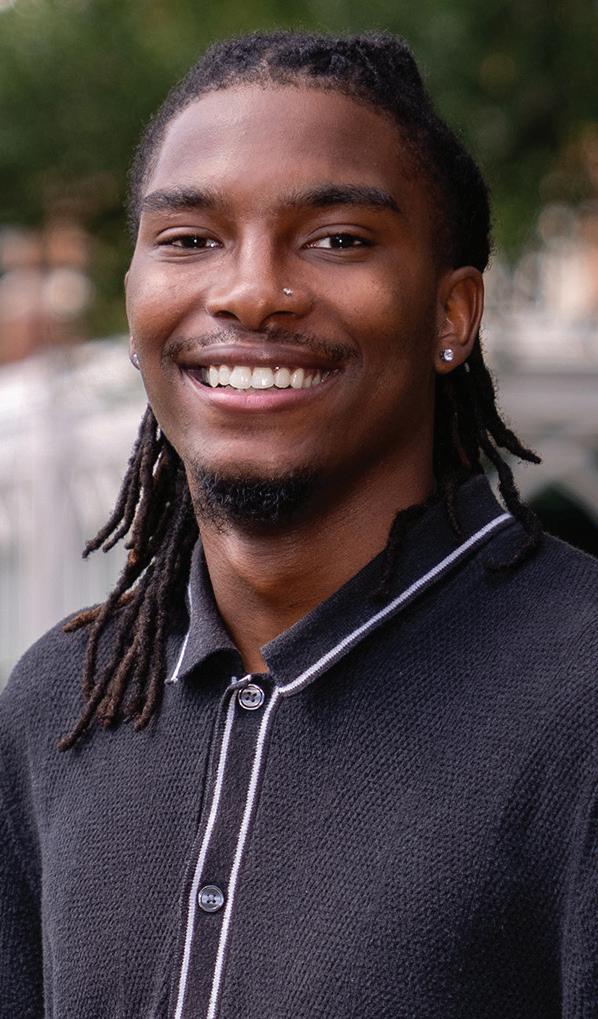
What are some of the local organizations you’ve worked with?
I had internships at the Sierra Club Virginia Chapter, a grass roots environmental nonprofit, and at Shalom Farms, a farm and food justice organization.
I served on the Young Leaders Council of the Sierra Club, a leadership and advocacy group that amplifies our voices on issues in our state.
Why did you choose to work with Shalom Farms?
I did a high school capstone project on food deserts. The model for my capstone was literally what Shalom Farms was doing, and I immediately gravitated to the organization. What other activities are you involved with on campus?
I’m president of Green UR, a student-led environmental advocacy group on campus. We lead recycling and waste reduction drives and encourage sustainable and environmen tally just choices on and off campus. We put the pressure on UR to divest from fossil
fuels. We’ve also built a student movement to put pressure on the university not to sign the current U.S. administration’s Compact for Academic Excellence in Higher Education, and we’ve worked to let the university’s administration know how diversity benefits our campus because diversity is beautiful.
What was your study abroad experience like?
Last semester, I was able to experience the Sahara Desert, the Himalayas and the Amazon rainforest in a span of three months. It was culturally immersive and spiritually fulfilling to
experience how different life is outside the U.S. The food and the people were amazing. I lived with a family in each country for a month and, during my time in Morocco, it was Ramadan, so I fasted with my host family. It was also my first time in Africa.
How do you start the day?
I’m not really a morning person. I wake up, have breakfast and prepare for my classes.
Who is your dream dinner party guest?
My great-great-great-grandfather, Charles G. Hurst Jr., who was the president of Malcolm X College in Chicago.
What is a quote that inspires you?
“Treat every community that

you go into like home and the people in it like family.” Who has influenced you the most in your life?
My mom.
What is a book that has influenced you?
“Passport to Freedom: Education, Humanism, & Malcolm X,” by my great-great-greatgrandfather, Charles G. Hurst Jr. What are you currently reading?
I don’t have much time to read for pleasure at the moment. I’m too busy reading for class. What are your plans after graduation?
I want to continue my education, perhaps by pursuing a Juris Doctor or a master’s degree in public policy or public administration.


and
United
are crafted to perform for you today and throughout your financial future. Our flexible options give you the features and benefits you need and expect, supported by outstanding customer service that meets you wherever you are.
Free Press staff report
Richmond’s next generation of thinkers and creators will take center stage Saturday, Nov. 8, when high school students host the 13th annual TEDxRVA Youth at Collegiate School’s Hershey Center for the Arts. The free event runs from 5 to 7 p.m.
Nine speakers and one performer of varying ages, races and genders will explore this year’s theme: wonder. The theme highlights how curiosity sparks discovery, drives change and inspires creativity — from childhood questions to scientific breakthroughs, from stirring art to movements that reshape communities.
Speakers include Hope Ward, an actor, writer, director and academic from Providence, Rhode Island, who earned a bachelor’s in theater and Black studies from Randolph-Macon College. Her acting credits include roles in “The Mountaintop” at Florida Repertory Theatre and “Bundle of Sticks” at Intar Theatre. She has also appeared on Amazon Prime’s “#LoveMyRoomie” and Paramount Plus’ “Evil.” She most recently had her New York debut of her play “A
platforms for local artists to display and sell their creations. Her project removes barriers to art access and gives the community a playful way to engage with creativity.
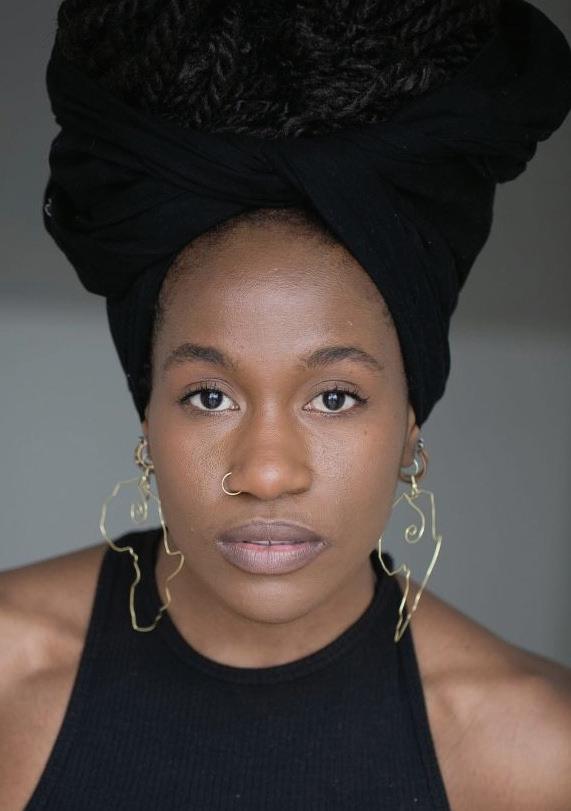
Brendan Dwyer, a professor and director of research at the Center for Sport Leadership at Virginia Commonwealth University, will discuss the business and marketing of sport. His research focuses on sport consumer behavior, fantasy sports and sports gambling. Dwyer has worked with organizations including the U.S. Olympic Committee, the Washington Commanders and Special Olympics of Virginia.
The evening will also feature a live performance by Erin Lunsford, an award-winning singersongwriter based in Richmond. Her Americana, folk and pop compositions showcase guitar, banjo and keyboard melodies. She was a semifinalist last year in the Songwriters Guild of America Country Song Contest for her song “Rhinestones.”
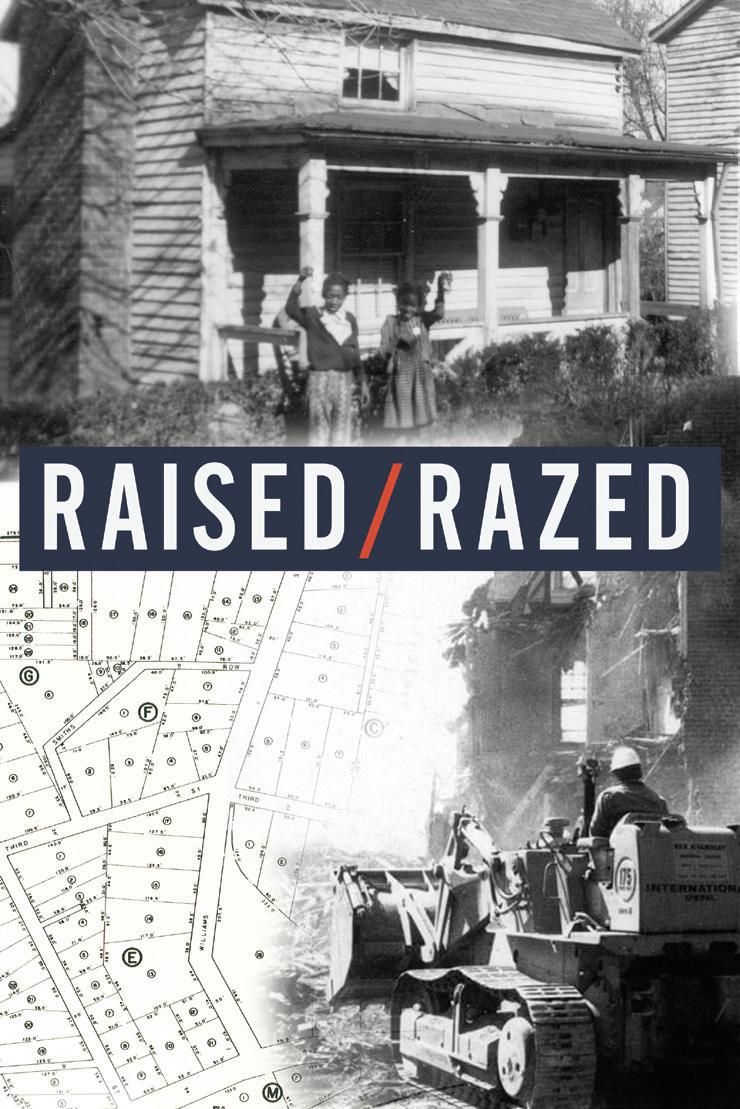
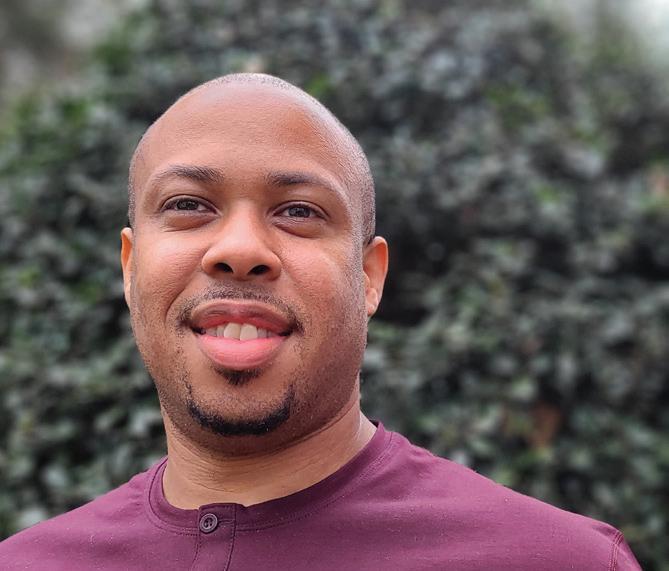
U G U S T 28th” at The Tank’s 2025 LimeFest.
Also speaking at the event is Aary, also known as Disco Bunny, who will showcase her work turning ordinary vending machines into
The event is organized by TEDx mentors and curated by 18 high school students who spent months managing marketing, securing sponsorships, coaching speakers and planning the program. The goal is to highlight the innovative ideas shaping Richmond’s future. Attendance is free, but registration is required at tedxyouthrva.com.
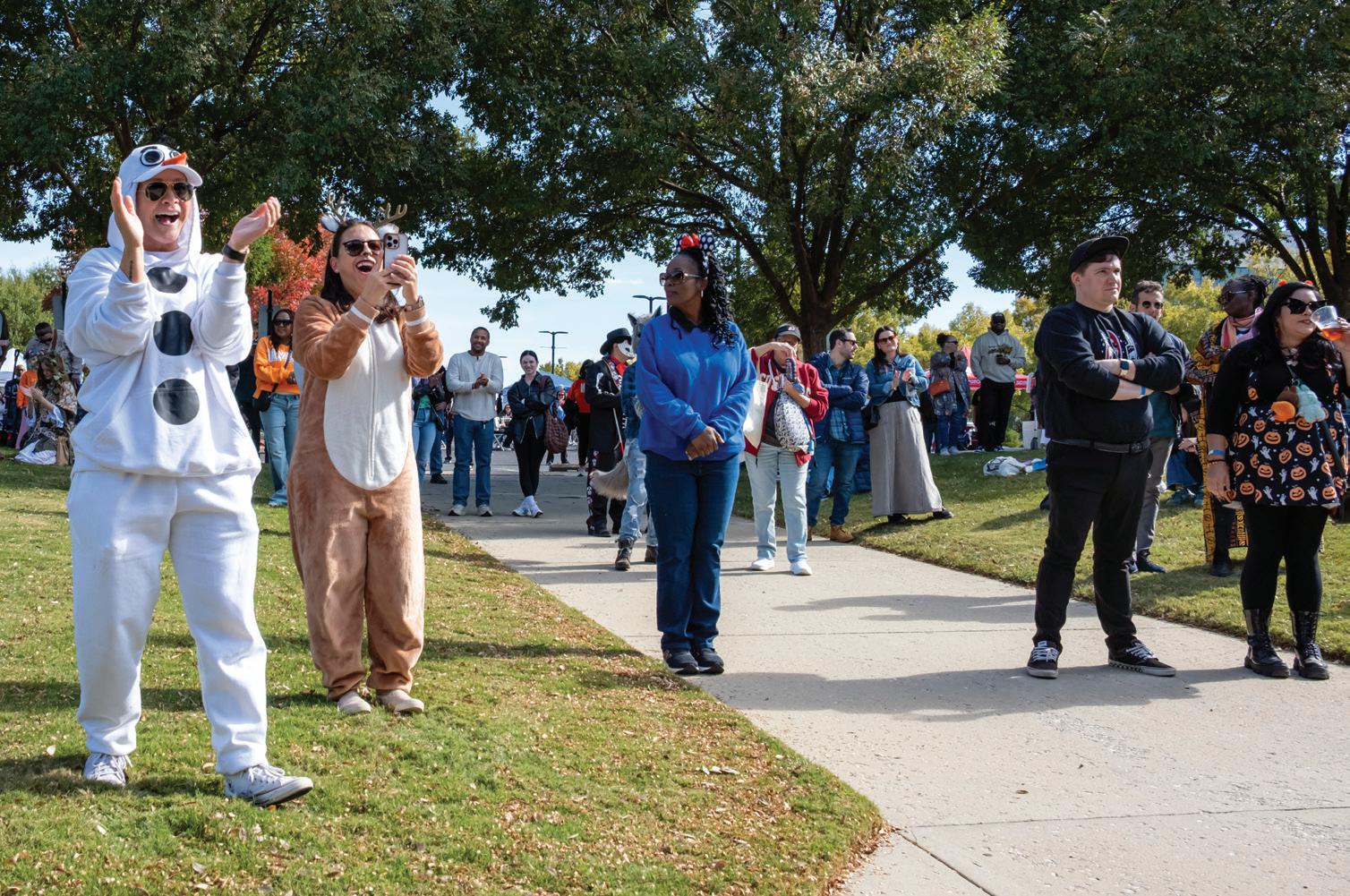
Hundreds of area residents embraced the fall spirit at the Scott’s Addition Pumpkin Festival on Saturday, Oct. 25. Held from noon to 6 p.m. at Midtown Green, the free, family-friendly event featured live music, more than 70 food trucks, a kids zone and a costume contest for kids, pets and adults. Attendees enjoyed local cuisine, beverages and entertainment throughout the afternoon. The event was organized by Three One One Productions and benefited NextUp RVA, a nonprofit that supports youth development through after-school programs.


In the quiet halls of the Library of Virginia, stories once buried beneath bulldozers and blueprints are finding their voices again. Two upcoming film screenings will explore the human cost of displacement in Virginia’s past — from a razed Black neighborhood in Charlottesville to the mountain families uprooted to make way for the Blue Ridge Parkway.
The events are part of the Library’s ongoing exhibition “House to Highway: Reclaiming a Community History,” which runs through Feb. 28.
Filmmakers Lorenzo Dickerson and Jordy Yager will present their Emmy and Telly Award-winning documentary “Raised/Razed” on Friday, Nov. 7 from 2 to 4 p.m. The film examines Charlottesville’s oldest African American neighborhood, Vinegar Hill, and the lasting impact of the federal Urban Renewal program that demolished it in the 1960s. Both filmmakers will lead a discussion following the screening. Registration is required at lva-virginia.libcal.com.
Dickerson, founder of the Maupintown Film Festival and Maupintown Media, focuses his work on stories of African American history
and culture in Virginia. Yager, the digital humanities director at the Jefferson School African American Heritage Center, helped launch the African American Oral History Project and the Mapping Cville and Mapping Albemarle projects, which trace property records containing racial covenants.
The second screening, “Rock Castle Home,” will take place Friday, Dec. 12 from 2 to 4 p.m. Director and executive producer Charles D. Thompson Jr., professor of the practice of cultural anthropology and documentary studies at Duke University, will lead a discussion after the film.
“Rock Castle Home” tells the story of the Rock Castle Gorge families displaced in the mid1930s as part of the National Park Service’s plan for the Blue Ridge Parkway. The film follows their descendants’ ongoing efforts to preserve their family histories through photographs and storytelling. Registration is required at lvavirginia.libcal.com.
More information about the “House to Highway” exhibition and related programs is available at lva.virginia.gov. Exhibition programming is supported by Virginia Humanities and the Mellon Foundation.
The Black American Artists’ Alliance of Richmond, recently opened “America the Beautiful?”—a group exhibition examining the complexities and contradictions of American life—at Browne Studio/Gallery, 1100 Hull St. The show runs through Nov. 28.
Featuring new and recent works by 12 artists in painting, printmaking, fiber arts and collage, the exhibition uses its title’s question mark intentionally, signaling an inquiry rather than a celebration.
“This exhibition is about holding space for critical reflection,” the curatorial team said. “Our goal is not to offer definitive answers, but to provoke conversation — about history, about
justice, about what it truly means to belong here.” Through their works, the artists confront tensions between the nation’s ideals and realities, including beauty and brutality, inclusion and exclusion, and resilience and erasure. The exhibition invites viewers to engage in a deeper dialogue about American identity.
Exhibiting artists include P. Muzi Branch, S. Ross Browne, Unicia R. Buster, Yhayha A. Hargrove, Barbara Hobson, William E. Johnson, Jeff Taylor, Sir James Thornhill, Dennis Winston and R. Vashti Woods. Guest artists are Jerome Jones and Jeromyah Jones.
BAAAR is a collective dedicated to promoting Black American visual art, establishing aesthetic principles and sociocultural themes and advancing scholarly research on the genre.
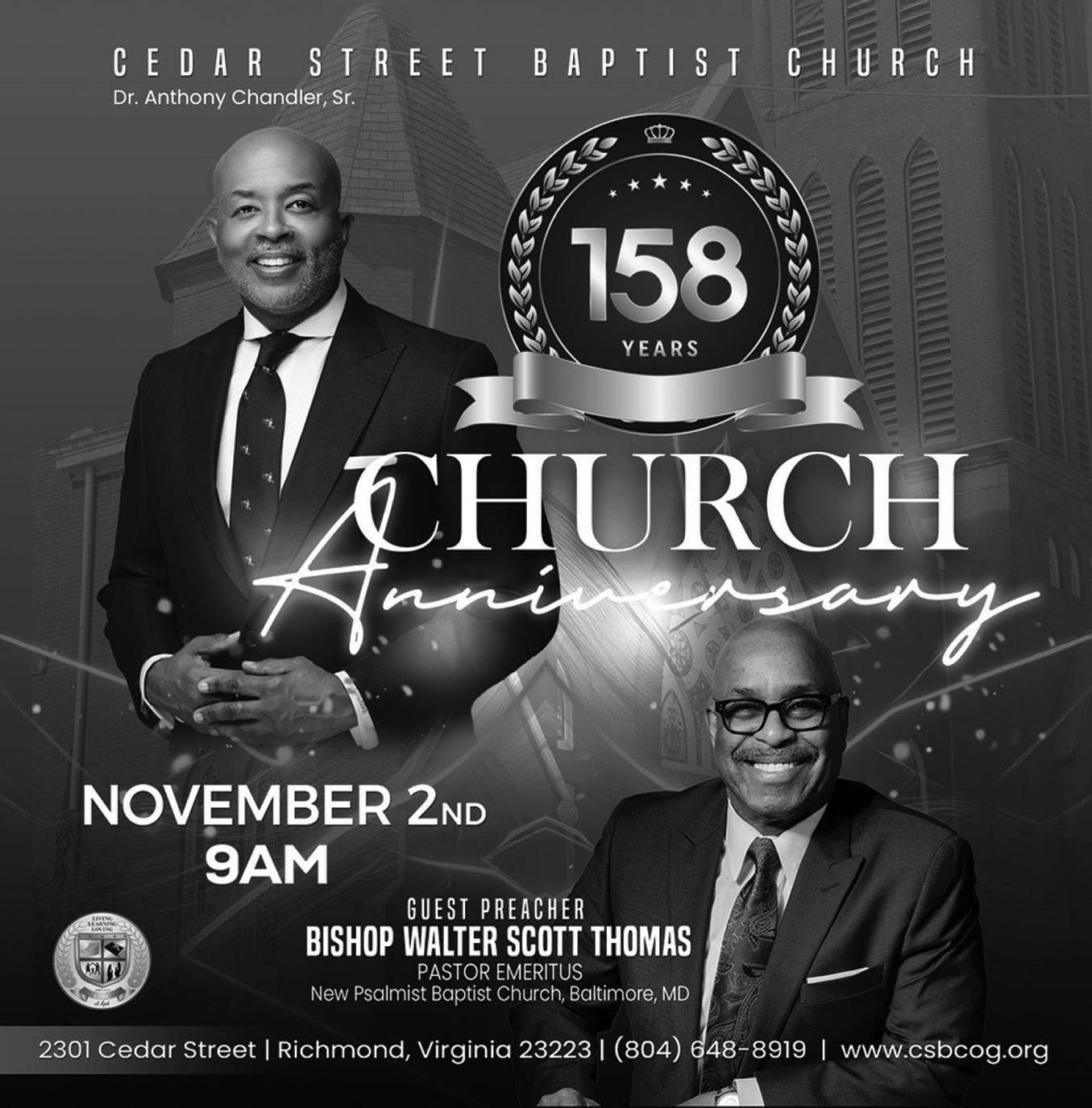


Free Press staff report
Dozens of Virginians, including clergy and community leaders, staged a “pray-in” outside the Richmond offices of U.S. Sens. Tim Kaine and Mark Warner on Monday, Oct. 20, to urge continued health care subsidies and protest recent federal budget policies.
The event was part of a coordinated, nonviolent prayer action held at congressional offices nationwide. Participants praised senators such as Kaine, who voted “no” on what they called the “big, ugly, deadly budget bill,” and urged elected officials to extend life-saving health care programs central to the government shutdown debate.
After a brief program of speeches and prayers, the group members sang “This Little Light of Mine” as they approached the building’s entrance. Organizers had been told they could check in at the front desk, but security guards denied them entry, citing the gathering as a protest. The participants prayed outside, and a second guard later asked them to leave the premises. The group complied and dispersed peacefully.
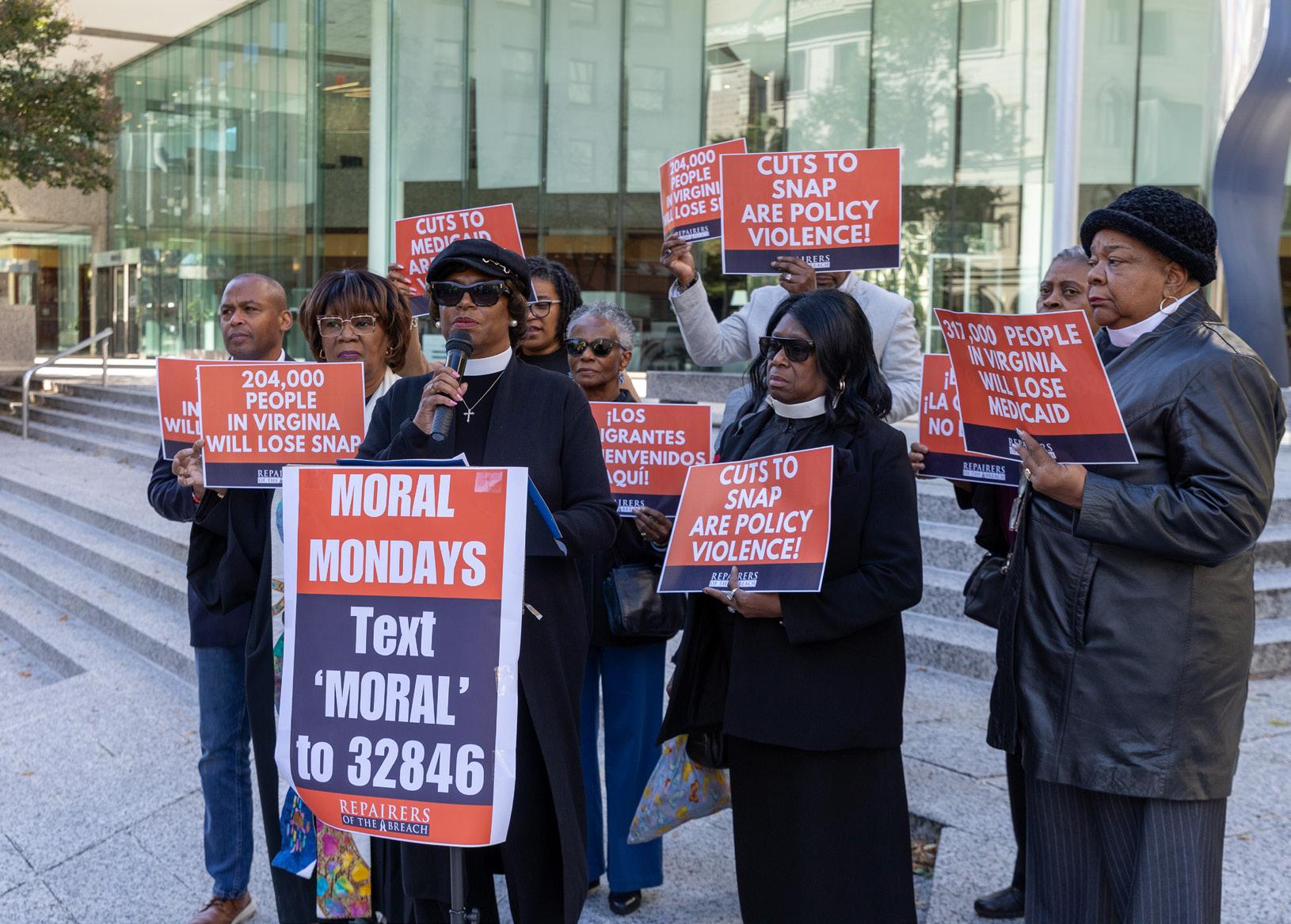
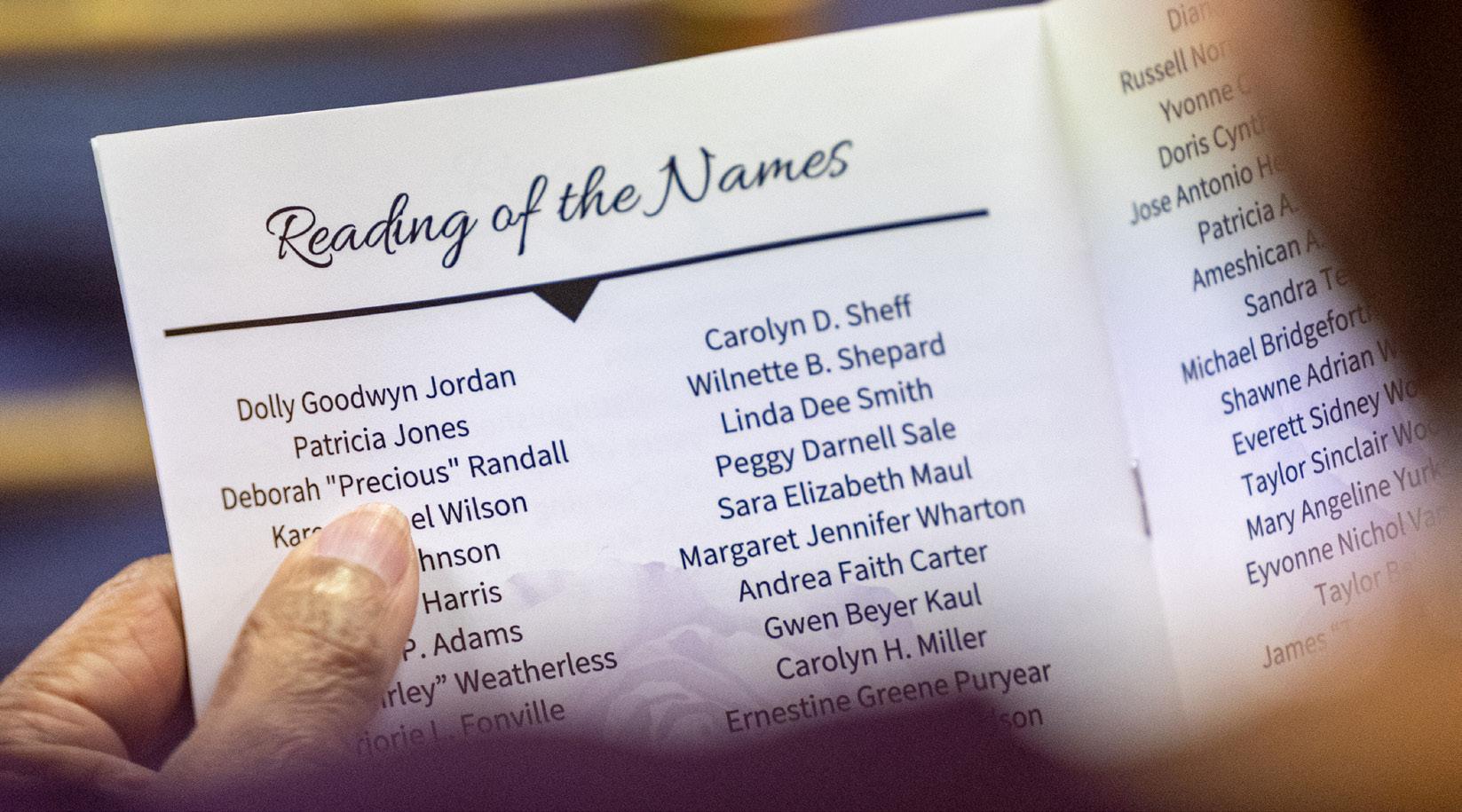
A few dozen Richmond residents, many wearing purple or displaying purple flowers or ribbons, filled Cedar Street Baptist Church on Thursday, Oct. 23 for YWCA Richmond’s Remember My Name memorial. The event, held during Domestic Violence Awareness Month, honored those who lost their lives to domestic violence and urged the community to take action to prevent future tragedies.
